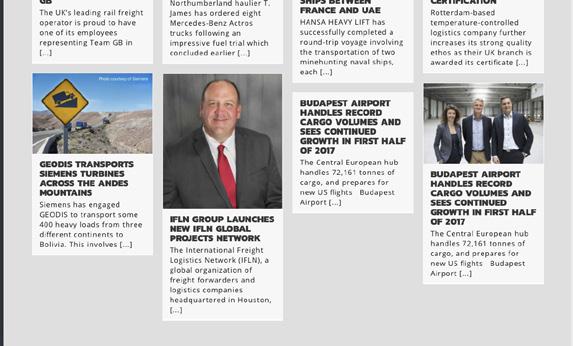FREIGHT’S AGE OF A.I.
MARINO OPENS NEW CONTAINER DEPOT in port of Mobile, Alabama
ROAD PRICES HIT APRIL RECORD as double-digit inflation remains
ROADONE ADDS ACE TRANSPORT MIAMI to its national network

GEBRÜDER WEISS USA OPENS NEW AIR

MARINO OPENS NEW CONTAINER DEPOT in port of Mobile, Alabama
ROAD PRICES HIT APRIL RECORD as double-digit inflation remains
ROADONE ADDS ACE TRANSPORT MIAMI to its national network

GEBRÜDER WEISS USA OPENS NEW AIR
IN MIAMI
ISSUE 5
Manifest Vegas is the largest global supply chain and logistics event that brings together the most comprehensive ecosystem of innovation and transformation.
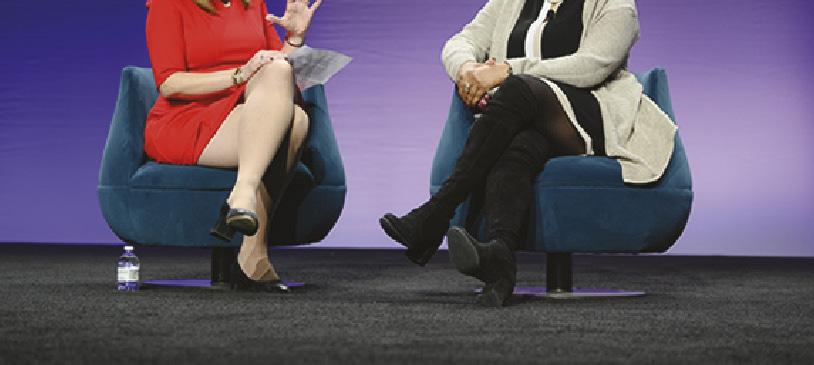
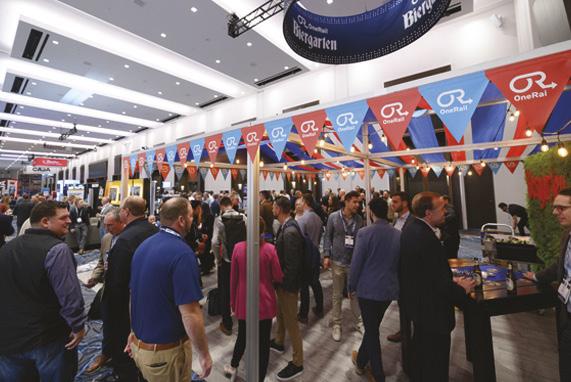

4500+ TOTAL ATTENDEES
1500+ SHIPPERS 1000+ STARTUPS & INVESTORS
250+ WORLD-CLASS COMPANIES

50+ COUNTRIES REPRESENTED
“Manifest Vegas exceeded my expectations on the ease to network, interact and find solution providers as well as companies who are seeking similar solutions. I would definitely recommend attending this conference.”
BeelianOng

The average adult spends most of their day looking at a screen. Checking their news feed, in front of their computer, on social media, online shopping, watching TV. Be on those screens. •
•
The ultimate in customer engagement. Mobile usage now outweighs desktop, so give your audience a focused, useful portal where you control the content and they remain interested.




•


Welcome
We have our usual selection of US-specific articles, with a smattering of global ones as well. We also have an interesting feature titled Freight’s age of A.I. has already begun, and we'll be publishing an issue soon that focusses on A.I. and its influence on our industry. Oh, and it's a long shot, but if you're planning to go to Multimodal in Birmingham (that's the original one, in the UK) in June, we'll see you there!
Tim, Designer, FORWARDER magazine





AIR FREIGHT
If it flies and it's freight, we'll feature it.
SEA FREIGHT
If it floats and it's fr... you get the idea.
ROAD FREIGHT
By far the largest share of cargo transport in the USA.
RAIL & INTERMODAL
The second stalwart; road's right-hand man.
PROJECT CARGO
Oversized, heavy, high-value or mission-critical stuff.
PORTS & HUBS
Gateways to the wider world.
TECH & DIGITISATION
From data to drones. Welcome to the future.
EXHIBITIONS & EVENTS
From promo to expo, don't risk FOMO.
CUSTOMS & SECURITY
If only COVID had been subject to this...
INDUSTRY SERVICES
Everything from freight forwarding to insurance.
CRISIS RESPONSE
The latest emergency, from money to monkeypox.
RECRUITMENT & TRAINING
Growing, perfecting, and certifiying your business.
MERGERS & ACQUISITIONS
The other way to grow your company.
MEDIA & MARKETING
This is a vital industry. Let's shout about it!
GIVING BACK
Environment. Fundraising. Charity. The feel-good stuff.
CRAIG EDITOR-IN-CHIEF craig@freightsolutions.com
WILL CONTRIBUTING EDITOR editor@forwardermagazine.com
PAUL MEDIA /EVENTS MANAGER paul@forwardermagazine.com
+44 (0)1454 275 946
TONY SALES EXECUTIVE tony@forwardermagazine.com
+44 (0)1454 628 795
OMAR SALES EXECUTIVE omar@freightsolutions.com



+44 (0)20 3872 6909
TIM DESIGN & PRODUCTION tim@forwardermagazine.com
MOHIT DIGITAL & SOCIAL mohit@freightsolutions.com
ADVERTISERS
Manifest ...inside front
Freight Solutions...intro
Atlantic Pacific...p11
DF Alliance...p13
FreightApp.design...p32
Gaston Schul...p42
ForwardingJobs...p53, p59, p60
Headford Group...p62
Freight Mergers...p69
FreightWebsite.design...p74
FORWARDER directory...p114
FORWARDER magazine...inside back
AIR FREIGHT
If it flies and it's freight, we'll feature it.
SEA FREIGHT
If it floats and it's fr... you get the idea.
ROAD FREIGHT
By far the largest share of cargo transport in the USA.
RAIL FREIGHT
The second stalwart; road's right-hand man.
PROJECT CARGO
Oversized, heavy, high-value or mission-critical stuff.
PORTS & HUBS
Gateways to the wider world.

TECH & DIGITISATION
From data to drones. Welcome to the future.
EXHIBITIONS & EVENTS
From promo to expo, don't risk FOMO.
CUSTOMS & SECURITY
If only COVID had been subject to this...
INDUSTRY SERVICES
Everything from freight forwarding to insurance.
CRISIS RESPONSE
The latest emergency, from money to monkeypox.
RECRUITMENT & TRAINING
Growing, perfecting, and certifiying your business.
MERGERS & ACQUISITIONS
The other way to grow your company.
MEDIA & MARKETING
This is a vital industry. Let's shout about it!
Environment. Fundraising. Charity. The feel-good stuff.
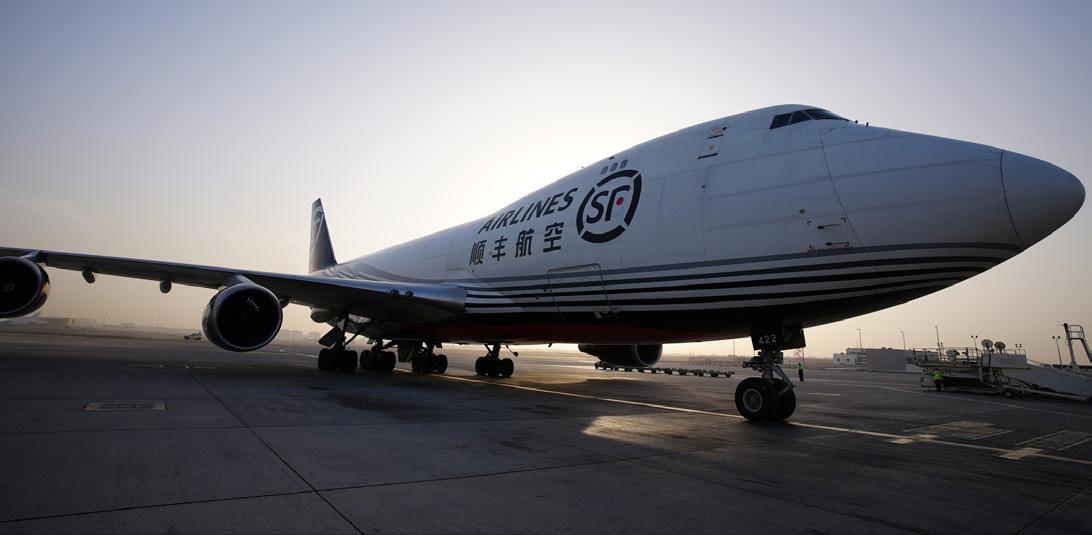
Abu Dhabi Airports, the owner and operator of five airports in the emirate of Abu Dhabi, welcomed the first SF Express cargo plane to Abu Dhabi International Airport.
The inaugural flight signalled the launch of operations for the global freight leader for the first time in the region. This strategic partnership is in collaboration with Etihad Cargo and Kerry Logistics, and further strengthens Abu Dhabi International Airport’s position as a key regional cargo hub.
Chinese-based SF Express, one of the world's largest providers of express logistics services and solutions, has gained significant attention in the logistics industry due to its recent international expansion strategy. With its sights set on strengthening its position as a major logistics and cargo player, SF Express has made impressive breakthroughs by launching operations between China’s Wuhan and Abu Dhabi.
Speaking about this achievement, His Excellency Eng. Jamal Al Dhaheri, Managing Director and Chief Executive Officer of Abu Dhabi Airports said: We are proud to welcome SF Express to Abu Dhabi. This marks a new milestone in our efforts to become a leading cargo and logistics hub in the region. We eagerly anticipate further partnerships as we continue our growth journey to establish Abu Dhabi as a major air cargo hub in the region.”
By partnering with industry leaders Etihad Cargo and Kerry Logistics, SF Express is set for success in the Middle East. With Etihad Cargo's prominence in the air cargo and logistics industry and Kerry Logistics' strong presence in the region, SF Express will be able to tap into the expertise and resources of these global providers, resulting in higherquality and more reliable service delivery for their customers.
Working with Abu Dhabi Airports will undoubtedly be a significant milestone and we are confident that this partnership will be beneficial for all parties involved. Abu Dhabi Airports is an important cargo hub in the region, and we are eager to work together as we connect and create value for our customers and strengthen our growing network.
Li Sheng, Chairman, SF AirlinesEtihad Cargo is fully aligned with the emirate of Abu Dhabi’s vision of becoming a global logistics hub. The inaugural SF Express cargo flight’s arrival in Abu Dhabi marks the beginning of a partnership between Etihad Cargo, Abu Dhabi Airports, SF Express and Kerry Logistics that not only supports SF Express’s Middle East expansion plans but also benefits Etihad Cargo’s customers, adding another mega hub gateway in China to Etihad Cargo’s growing global network, further strengthening cooperation between Abu Dhabi and China.
Martin Drew, Senior Vice President – Global Sales & Cargo, Etihad AirwaysAbu Dhabi International Airport has been determined to establish itself as a prime air cargo and logistics hub by forging new strategic partnerships. This new announcement further bolsters its standing in the region and is an important move to foster the growth of logistics business in the Middle East.
DHL Express upgrades its fleet with the order of nine Mammothconverted B777-200LR freighters

First delivery expected in 2024, with aircraft to replace older B747 freighters
Renewal of long-haul aircraft fleet strengthens DHL’s intercontinental air network
State-of-the-art aircraft support goals of Deutsche Post DHL Group's Sustainability Roadmap
DHL Express has ordered nine Mammoth-converted B777200LR freighters from Jetran. The first cargo aircraft will be delivered in 2024, with the remaining aircraft to be supplied until early 2027.
This agreement is part of the overall sustainability priority to modernize DHL Express’ long-haul intercontinental fleet, including the replacement of older planes. Ordering converted freighters with a shorter useful life provides an efficient bridge between current and new airframe technologies, such as new generation wide-body freighters B777-8F and A350F.
We are excited to welcome Mammoth-converted B777-200LRFs to the DHL Express family. With the modernization of our intercontinental fleet, we can simultaneously enhance our proven ability to meet growing demand, improve our environmental footprint and deliver best quality service to our customers. We are pleased to continue demonstrating to partners and customers alike how these advancements elevate our service and bring us closer to our Sustainability Roadmap goals. Robert Hyslop, EVP Global Aviation, DHL Express
The Mammoth converted B777-200LR freighter promises similar characteristics and benefits as the production freighter and is an ideal fit for DHL. With a payload capacity of 102 tons and a range of 9,200 kilometer, the B777F has the largest capacity and range of all twinengine freighter aircraft and is more reliable than older B747 planes. It is also more fuel-efficient and reduces CO2 emissions by 18 per cent compared to legacy airplanes.
Between 2018 and 2022, DHL bought 28 new B777-200F freighters from Boeing – 18 of those aircraft are currently in service. The remaining aircraft will be delivered from 2023 to 2025. The aircraft forms the backbone of DHL’s intercontinental air network, in which DHL Express operates more than 300 dedicated aircraft with 18 partner airlines on over 2,400 daily flights, across 220 countries and territories.
Hongyuan Group and cargo.one today announced a partnership that will see Hongyuan capacity available for instant booking on the market leading air cargo marketplace. Hongyuan Group is rapidly becoming an important operator for air cargo services between destinations in China and across Europe and South America. Partnering with the established, go-to marketplace for thousands of active freight forwarders will enable Hongyuan Group to boost sales and gain valuable ground rapidly in its digitalization of sales processes.
With over 20 years of professional cargo logistics service experience, Hongyuan Group is well known to freight forwarders globally for its high-frequency air cargo flights between China, Europe and the United States. In addition to its self-owned capacity resources such as B747-8F and A330-200F, Hongyuan is significantly expanding its available capacity for the coming years to meet future air cargo demand.
For the first time, thousands of freight forwarders will gain real-time digital access to Hongyuan’s routes and rates, with the new choice of instantly bookable offers and confirmation, all within a few minutes. For example, due to its front-loaded aircraft, Hongyuan Group offers forwarders the exciting option of booking up to 6 meter shipmentssoon with cargo.one’s digital booking speeds.
Customers using cargo.one also benefit from valuable booking management and collaboration functionality, combined with cargo.one’s renowned expert customer support. The addition of Hongyuan Group capacity reflects cargo.one’s strong diversity of supply options for all important air cargo markets.
Since 2018, we have been building up air cargo services with a strong mission to open up the world for freight forwarders. Digital sales is an important step in offering our customers greater convenience and service quality, and cargo.one is the ideal expert partner to enable us to seize maximum potential in all our relevant markets.
Mr. Wen Yi, business representative, Hongyuan GroupWe are proud to bolster our clear leadership for digital distribution by becoming Hongyuan Group’s partner of choice for their digital sales efforts. Thousands of freight forwarders using cargo.one will soon benefit from Hongyuan’s strong offerings into Asia. Hongyuan Group can now accelerate its digital sales journey and gain important ground with our established frameworks and digital best practices.
Moritz Claussen, Founder & Co-CEO, cargo.oneDigital distribution comprises an important strategic component of Hongyuan Group’s global expansion. cargo.one will deliver the industry’s leading standard for customer-centric digital booking experiences. cargo. one’s team will also support Hongyuan Group through technological and organizational changes needed to maximize digital distribution effects. For example, cargo.one guides airlines towards enhanced sales efficiencies by leveraging compliant data insights in cargo.one360 to optimize its offer quality and win new growth opportunities.
The partnership with Hongyuan Group, its first Chinese carrier, is the latest step in cargo.one’s Asia-Pacific growth trajectory. Over the past year, cargo.one has signed major airline partnerships to deliver greatly increased capacity options across the Asia Pacific region. Soon freight forwarders on cargo.one can book Hongyuan Group capacity to important destinations in China including Shanghai, Beijing and Chengdu.
In-depth examination by WorldACD of global demand and pricing figures in the first quarter of 2023 highlights markets, lanes and product types still recording gains or deviating significantly from the worldwide average, plus other underlying trends
In-depth analysis of global air freight demand and pricing figures in the first quarter (Q1) of 2023 reveals some big variations behind the overall declines, with some markets, lanes and product types still recording gains and others deviating significantly from the worldwide average, according to WorldACD Market Data.
As the air cargo data specialist reported earlier this month, worldwide air cargo chargeable weight flown in the first quarter (Q1) of 2023 ended up -11% below that of the equivalent period last year (Q1 2022). But a deep-dive into WorldACD’s data reveals that behind those figures there is a tremendous amount of variation globally, depending on factors such as origin point or region, product type, shipment weight, and whether cargo was flown via freighter or passenger belly capacity.
For example, the overall tonnage performance of the different main origin regions ranges from a +1% year-on-year (YoY) rise in air cargo volumes originating from Africa and from Central & South America (C&S America) to a decline of -18% from North America and a -16% drop from Asia Pacific, with Europe at -5% and Middle East & South Asia (MESA) closer to the average at -8%.
Breaking down those origin figures further reveals that the -16% drop from Asia Pacific includes a -24% decline in intra-Asia traffic and a -21% fall in traffic to North America, and more-modest declines to Europe (-10%) and Africa (-9%), YoY, despite a capacity rise of +7% ex-Asia Pacific. But that total -16% figure also hides a +30% rise in traffic ex-Asia Pacific to C&S America and a +9% rise to MESA.
Meanwhile, the -18% drop from North America comes despite a capacity rise of +9% and includes a -29% decline to Asia Pacific markets, compared with Q1 2022.
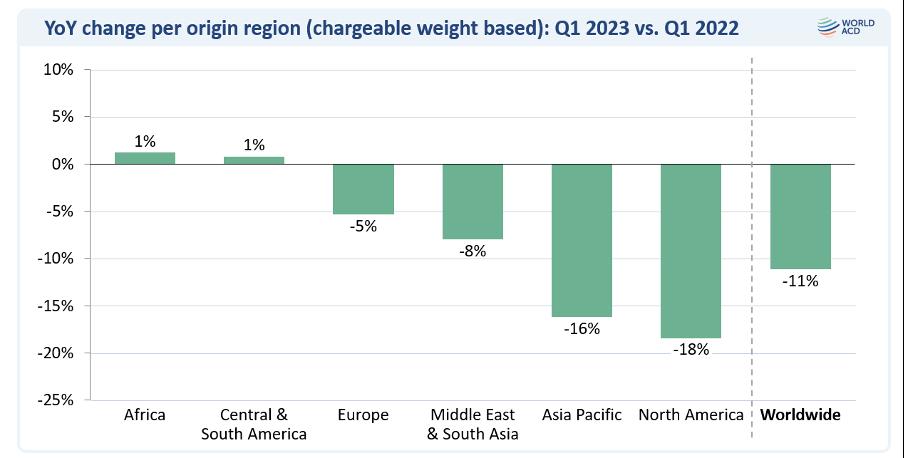
Also highly revealing is an examination of the demand profiles of different shipment weight bands, which highlights a continuing trend towards smaller shipments, correlated with the ongoing growth of e-commerce. Analysis by WorldACD reveals that shipments up to 1000 kgs increased by +3%, YoY, whereas those in the 1000-5000 kgs bracket decreased by -5% and the total tonnage of shipments greater than 5000 kgs decreased very significantly in Q1, by -18%.


Live Animals recorded the biggest growth (+10%), with moremodest gains for Valuables (+3%), Perishables (+2%) – including Fruit & Vegetables (+3%), Fish & Seafood (+2%) and Flowers (+1%) – and Pharma/Temp products (+1%). However, there were modest declines on certain other product types including Dangerous Goods (-5%), Human Remains (-4%), Vulnerables/High-Tech (-3%), and Meat products (-2%) that meant demand for special products as a whole remained flat at 0% in Q1, YoY.
From a carrier perspective, the overall decline in global demand was shared relatively evenly in terms of airlines’ regional geographic bases, although airlines from MESA (-8%) and the Americas (-8%) did best, and airlines from Africa experienced the greatest drop in cargo (-17%), with carriers from Asia Pacific (-12%) and Europe (-14%) performing slightly below the global average.
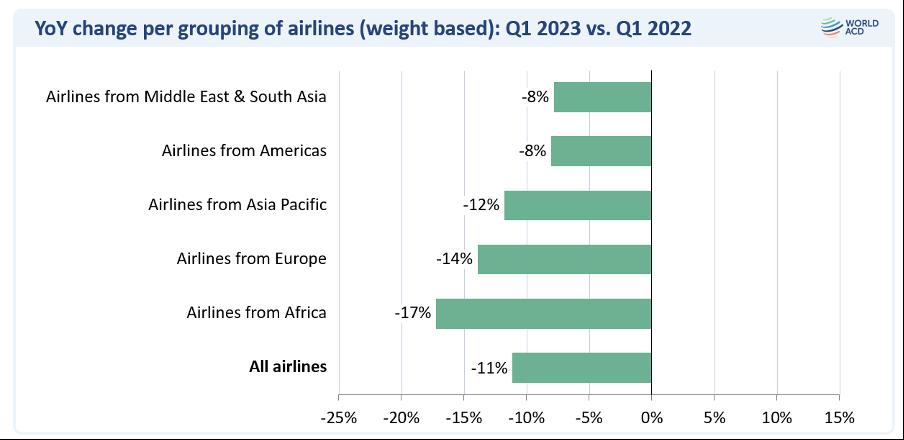
Zooming in on the relatively stable Perishables markets, where total worldwide overall volumes were up by +2%, we can see some significantly different performances among the top origin countries and between different Perishables categories.

For example, while Fruits and Vegetables ex-US Pacific states were down -20%, YoY, demand from Egypt rose by +35%. And although Fish & Seafood tonnages from Norway were down -6%, they rose by +3% from Chile and +27% from the UK. And shipments of Flowers from Ecuador rose by +10% whereas demand from Colombia was more or less stable (+1%) and increased by around +3% from Kenya.
Examining the results on a product or verticals level, there is also considerable variation. Continuing a long-term trend towards a growing importance of special products, General Cargo experienced the biggest decline, falling -16%, YoY, whereas the various special products categories saw either a much more modest decline or growth in some verticals.
Unsurprisingly, given the recent pandemic and market dynamics, there was also a strong difference between the relative performance of those operating all-cargo aircraft versus passenger belly capacity, consistent with the progressive return of passenger aircraft to the market as part of post-Covid recovery.

But more dramatically, while Dubai-London volumes were down by -24%, Hong Kong-Dubai tonnages rose by +38%, YoY, although average rates on that lane fell by -28% – consistent with a rise in capacity from the Far East to the Middle East, due in part to the war in Ukraine and some post-Covid reopening of Asian markets.
Last but by not least, WorldACD has done an extra-deep analysis of the dynamics of the Pharma/Temp market to reveal some highly noteworthy trend developments, particularly by splitting the Pharma/Temp category into two subcategories: shipments requiring Active cooling versus those using Passive cooling or temperature-control methods. Active cooling represents 10.6% of the total Pharma/Temp volume in Q1 of 2023, versus 10.3% last year.
Freighter operators experienced the largest decline (-19%) in traffic volumes compared with last year, while airlines with only passenger aircraft performed best (-2%). Airlines operating both passenger and freighter aircraft fell somewhere in the middle, recording a -11% drop in tonnages.
A selection of some key lanes highlights that many lanes experienced weight and rate trends that are significantly different from the worldwide average of -11% and -31%, respectively. For example, Frankfurt-Seoul recorded a -13% decline in volumes, but a +9% rise in average yields, with Milan-Hong Kong seeing a much smaller volume decline (-1%) but also achieved a rise (+4%) in average rates.
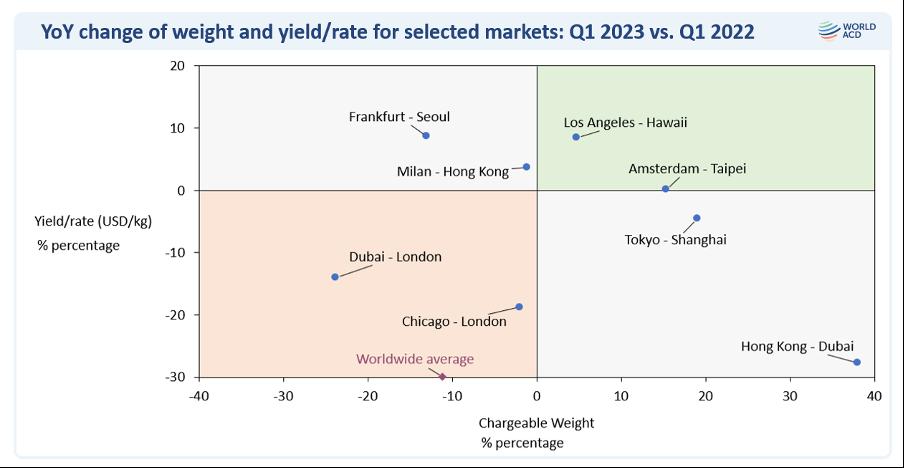
The Pharma/Temp category as a whole – which accounts for around 4.1% of total worldwide flown air cargo and includes Pharma and other temperature-controlled non-perishables products – saw a worldwide rise in Q1 of almost +1% (+0.7%), YoY, partly thanks to a significant rise (+4.5%) in shipments requiring Active temperature control or cooling. In contrast, shipment volumes using Passive temperature control grew just +0.3% during this period, on a global basis.
This analysis becomes even more interesting when we examine specific lanes or origin and destination markets. WorldACD’s analysis reveals that the top 10 origins for shipments using Active cooling technology in 2023 Q1 were: USA, Germany, Switzerland, Italy, France, Belgium, Ireland, India, and Austria. Among these, the four largest countries (USA, Germany, Switzerland, Italy) account for 56% of Active worldwide volumes.
Within this group, shipments using Active cooling are growing by more than 10%, YoY, from the following origins: France (+113%), Belgium (+65%), Italy (+17%), Germany (+14%), Netherlands (+14%). Among the top 10, there were declines ex-USA (-9%), Austria (-8%) and ex-India (-5%).
In terms of destination markets, WorldACD has identified the top 10 destinations for Active cooling in Q1 2023 as: USA, China, Brazil, Japan, Canada, Australia, Switzerland, Taiwan, Belgium, South Korea, with the four largest destinations (USA, China, Brazil, Japan) accounting for 54% of worldwide volume in Active cooling.
Among this group, shipments flown using Active cooling grew by more than 10%, YoY, to the following destinations: Taiwan (+81%), USA (+44%), and Japan (+13%), with double-digit declines to China (-39%), Australia (-29%), South Korea (-18%), Brazil (-17%), and Belgium (-15%).
Region to region, the two largest regional markets (Europe to North America and Europe to Asia Pacific) account for 55% of worldwide volume in Active cooling, with double-digit YoY growth on Europe to North America (+45%), North America to MESA (+22%) and Europe to MESA (+15%).
But analysing specific origin and destination markets also reveals significant growth in certain parts of the Passive Pharma/Temp market, which still makes up almost 90% of Pharma/Temp shipments. For example, there was double-digit percentage growth from top origin markets including Italy (+45%), Ireland (+16%), India (+13%), the Netherlands (+13%) and Switzerland (+12%). And Passive Pharma/Temp shipments continued to rise to key Asia Pacific destination markets such as Taiwan (+34%), China (+20%), South Korea (+13%) and Australia (+8%), plus also to Brazil (+6%).
Import cargo volume at the major US container ports is climbing back from a nearly three-year low in February but is expected to remain well below last year’s levels heading into this fall, according to the Global Port Tracker report released today by the National Retail Federation and Hackett Associates.
Consumers are still spending and retail sales are expected to increase this year, but we’re not seeing the explosive demand we saw the past two years. Congestion at the ports has largely gone away as import levels have fallen, but other supply chain challenges remain, ranging from trucker shortages to getting empty containers back to terminals. We were pleased by recent reports of progress related to the West Coast port labor negotiations but will continue to monitor the situation closely until there is a new agreement ratified by both parties. With economic uncertainty continuing, the impact on trade is clear.
Jonathan Gold, Vice President for Supply Chain & Customs Policy, NRFYear-over-year import volumes have been on the decline at most ports since late last year and declining exports out of China highlight the slowdown in demand for consumer goods. Our forecast now projects a larger decline in imports in the first half of this year than we forecast last month. Our view is that imports will remain below recent levels until inflation rates and inventory surpluses are reduced.
Ben Hackett , Founder, HackettU.S. ports covered by Global Port Tracker handled 1.62 million TwentyFoot Equivalent Units – one 20-foot container or its equivalent – in March, the latest month for which final numbers are available. That was up 5% from February – which saw the lowest levels since May 2020 – but down 30.6% year over year.
Ports have not yet reported April numbers, but Global Port Tracker projected the month at 1.73 million TEU, down 23.4% year over year. May is forecast at 1.83 million TEU, down 23.5% from last year’s 2.4 million TEU, the all-time record for the number of containers imported during a single month. June is forecast at 1.9 million TEU, down 15.9%; July at 2.01 million TEU, down 7.9%; August at 2.04 million TEU, down 9.9%, and September at 1.96 million TEU, down 3.4%. The large yearover-year declines are skewed by unusually high volumes last year.
The first half of 2023 – previously forecast at 10.8 million TEU – is now forecast at 10.4 million TEU, down 22.8% from the first half of 2022. Global Port Tracker has not yet forecast the full year, but the third quarter is expected to total 6 million TEU, down 7.2% from the same time last year, and the first nine months of the year would total 16.5 million TEU, down 17.8% year over year. Imports for all of 2022 totaled 25.5 million TEU, down 1.2% from the annual record of 25.8 million TEU set in 2021.
Global Port Tracker, which is produced for NRF by Hackett Associates, provides historical data and forecasts for the U.S. ports of Los Angeles/ Long Beach, Oakland, Seattle and Tacoma on the West Coast; New York/New Jersey, Port of Virginia, Charleston, Savannah, Port Everglades, Miami and Jacksonville on the East Coast, and Houston on the Gulf Coast. The report is free to NRF retail members, and subscription information is available at NRF.com/PortTracker or by calling (202) 783-7971. Subscription information for non-members can be found at www.globalporttracker.com.
As the leading authority and voice for the retail industry, NRF analyzes economic conditions affecting the industry through reports such as Global Port Tracker.





The nature of demand on the headhaul legs of both lanes is very different, according to experts appearing on the latest episode of The Freight Buyers’ Club podcast
The post-Covid US trade slowdown is impacting household goods demand far more seriously than industrial freight demand, according to analysts appearing on the latest episode of The Freight Buyers’ Club podcast, produced with the support of the Dimerco Express Group.
But demand for imported non-industrial products typically shipped by container or via air freight solutions such as clothing, computers, phones and furniture had significantly fallen away.

Anything single family housing related has been very much hit by this huge cool down of housing activity of roughly 30% from this time last year, said Miller. This is one reason why, according to Miller, the US trucking market has been in recession since the third quarter of 2022.
This explains why since the second half of 2022, the trans-Pacific container trade has seen freight rates and demand drop far more significantly than the trans-Atlantic, and why domestic trucking and air cargo markets have turned bearish.
Jason Miller, Interim Chairperson, Department of Supply Chain Management, Michigan State University, Eli Broad College of Business, believes the U.S. economy is not displaying any serious 'red flag indicators' that an economic recession is imminent, but is suffering 'a freight recession' that is affecting logistics and shipping lanes in varied ways. He said US credit card delinquency rates were still below pre-Covid rates, mortgage delinquency rates were falling, wage growth was still 'very robust' and demand across key parts of the economy including motor vehicles, parts, heavy equipment and 'everything associated with infrastructure' was performing well.
It also helps explain why the westbound trans-Atlantic container shipping market has been performing far better than imports to the US from Asia, according to Judah Levine, Head of Research, Freightos.
Levine told The Freight Buyers’ Club that the current US freight recession was in part due to heavy imports in the first half of 2022 which had left many retailers with huge inventories. But, he added, this had impacted the trans-Pacific headhaul market far more than US imports from Europe.
If you look at the trans-Atlantic, rates there are still more than double what they were in 2019, he said.
Even though rates on the trade have fallen around 50% since their peak earlier this year, Levine said the decline had been far less severe than on the trans-Pacific where spot freight rates had collapsed.
He said this was because the two trades were driven by different types of imports.
When we talk about the trans-Pacific; it's consumer goods, he said, adding that what people were buying now was also very different than during the pandemic when bulky household goods were in high demand.


On the trans-Atlantic, it's a different mix of goods and actually demand is still higher than it was in 2019, even though it has been declining, he added.
Miller said when he examined individual tariff codes in detail, he found the trans-Pacific boom in 2021 and second half of 2022 was 'really primary housing'.
By contrast, the containerised goods being shipped in heavy volumes on the trans-Atlantic from Europe to the US in 2022 were products such as Portland cement, gypsum, electrical storage batteries and other chemical products.
So, it's much more that industrial side of things, and especially the non-residential construction space, which is still very strong right now in the US. And so that's why we just can't generalize. Eastbound transPacific is down, but that doesn’t mean that westbound trans-Atlantic is going to fall off a cliff in the same manner.

Average container prices bottoming out in Europe, no further steep falls in Q1
Lower freight rates and heavy price competition, bigger players inching towards consolidation
Europe’s economic rebound is mixed as the service sector bounce back is the biggest since 2009 while the manufacturing sector witnessed a decline in orders for goods. The economy is expecting a modest recovery which is a very encouraging sign for the supply chains in the longer term.
The industry sense is that the freight rates and the container prices have bottomed out globally. The industry surveys conducted by S&P Global indicate a subdued economic rebound. The eurozone’s annual rate of inflation stood at 6.9% in March, its lowest level since the invasion of Ukraine in February 2022.
Clearly, the ocean market has not deteriorated further but still a far away from normal in Europe. Strikes in France and Hamburg during March, the Easter holidays in early April and the persistent inflationary pressures, have caused service closures and limited labour availability in this market but we do not expect further disruptions in the foreseeable future for carriers and freight forwarders.
The problem of overloaded depots persists in Europe throughout. There are more containers coming back to the depots as compared to the number of containers going out of depots. We see lower freight rates and heavy price competition, especially for small freight forwarding companies. The bigger freight forwarders are providing rates below market prices to push competition out towards consolidation. The China to EU rates is as low as $700. There is an overall reduced demand for goods in Europe, and we witness a slowdown in movement of volumes. On the Europe to China route, freight rates are as low as $91 dollars. Carriers only give 7 days of ‘free days’ for container storage and then need to pay high Demurrage and detention charges for another 7 days if they need to use containers for longer.
The smaller freight forwarders are struggling for margins and the bigger players are moving towards consolidation in Europe.
The geopolitical tensions coupled with the port strikes posed major headwinds for the shipping industry in Europe. But the overall industry is bullish about the market and hopes for recovery.
With our platform data, we do observe that the container prices are not falling at a staggering rate, and these seem to be rather resilient in Europe over the past 30 days.
The average prices in Europe for cargo worthy 20 ft dry containers has continued to decline month on month until April. These prices are significantly lower than those in Shanghai and in Los Angeles. (See chart below). The average price for a cargo worthy 20 ft DC is anywhere between $750 to $1700.
Container xChange reported in March 2023 that there is a situation of excess of containers in Europe. But the situation seems to have improved since last month.
Looking at how container availability has improved, we infer from our data that the Container availability index (CAx) has improved significantly if we compare to the past two years. The elevated CAx values are now coming down which indicates a better balance of inbound to outbound containers.

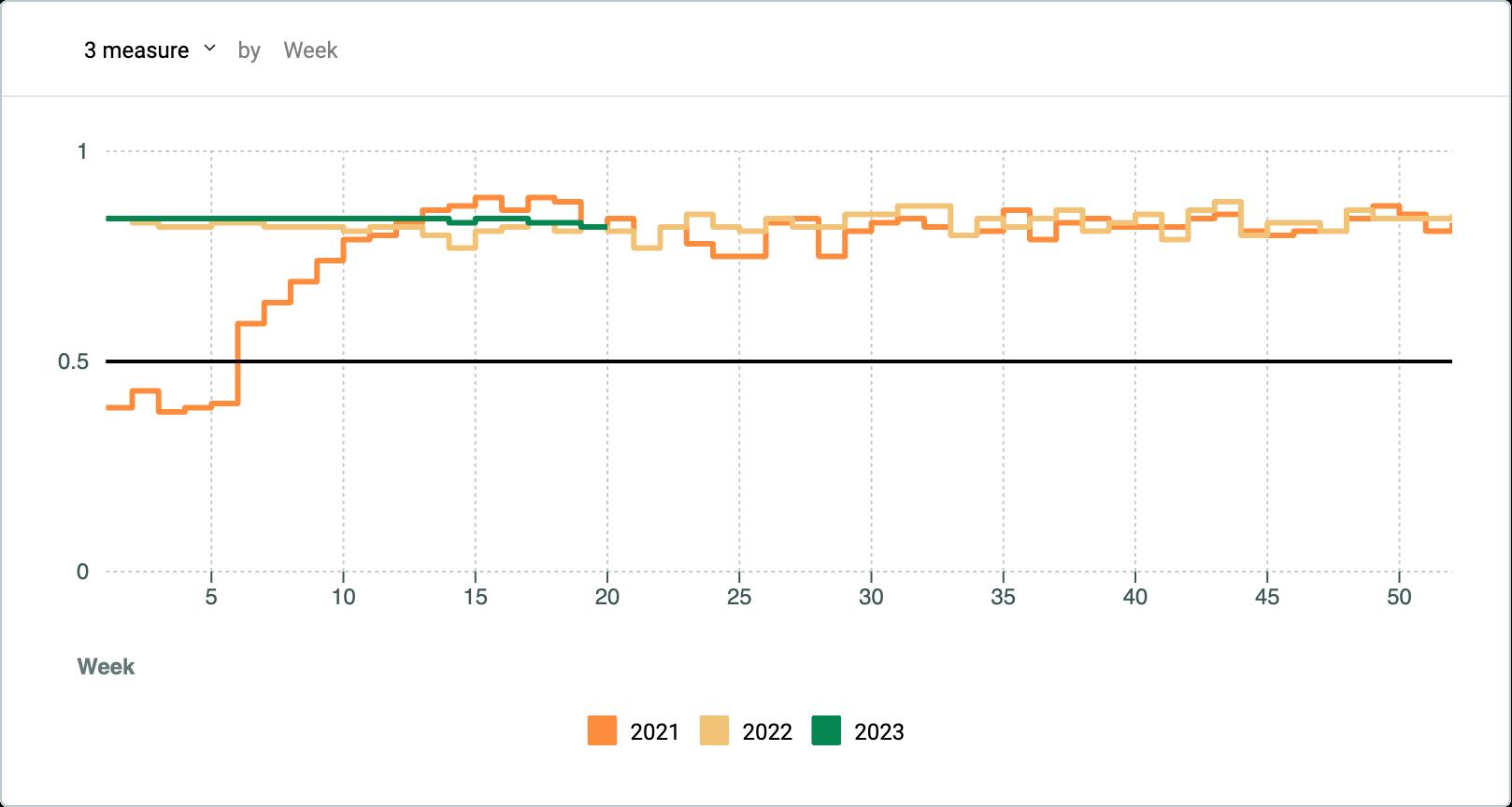

While the overall economic outlook for Europe brings signs of rebound, the container logistics industry in general is grappling with many struggles like depots being overwhelmed, rates bottoming out, the global bank crisis, and overshooting demurrage and detention costs. Companies are struggling to find their feet on the ground, and it will still take a few months before the demand recovers. Till then, the industry players are focusing on improving their margins and sustaining their business.
In Hamburg, we see bloated CAx figures, but if we compare those year on year, then there seems to be an improvement in the inbound to outbound containers ratio.
Container xChange is an online container logistics company that provides a neutral infrastructure and operating system for container trading, container leasing and container management.
Expansion strengthens RoadOne’s Southern Florida footprint by providing its customers with another reliable container logistics gateway in the Southeast for import and export freight
RoadOne IntermodaLogistics, a single source intermodal, warehouse, and logistics services company, announces today its acquisition of Ace Transport Miami LLC, an intermodal and transload service provider in Miami, Florida. Going forward the company will become a division of RoadOne known as Ace IntermodaLogistics.
Ace is a top-5 logistics and transportation carrier in the Miami market, with 70 drivers serving the Southern Florida market and a fleet of 300 company-owned chassis that provide shippers with added value by ensuring chassis are available when needed. Ace has established itself as a niche provider handling overweight loads out of PortMiami and Port Everglades, and is one of the few carriers that handles overweight containers in the Southern Florida market today. Additionally, the company's 100,410 sq ft warehouse in Miami supports transload and distribution services for import and export freight moving through the busy PortMiami and Port Everglades.
This acquisition is a significant milestone for RoadOne IntermodaLogistics as it increases its overall Florida service network, with Miami being the 10th largest port in the U.S., and Port Everglades the 12th ranked port in the U.S. This expansion is an important addition to RoadOne’s network as it continues to complete its overall national scope of logistics services covering every major port in Florida, and now has the capability to offer dedicated logistics and distribution services to the busy Miami market.
Rudy Alvarez, Founder and Owner of Ace Transport Miami LLC, and his brother, David Alvarez, VP of Operations, will remain as shareholders in RoadOne IntermodaLogistics and continue to run the day-to-day operations of the company, working alongside the RoadOne team.
It’s a thrill to join the RoadOne organization. In today’s competitive market, we know that as part of RoadOne we will have the resources necessary to continue our strong growth and provide optimal logistics and distribution solutions to support our customers supply chain needs.
Rudy Alvarez,
Founder & Owner, Ace Transport Miami LLCThis new Southern Florida presence enables RoadOne to enhance its collaboration with industry partners in the region and service new customers, as well as offer its existing customers a new Southeast service option with a key gateway for imports and exports between the U.S. and Latin America.
Welcome Ace Transport Miami LLC to our family of companies. We are confident that Ace's strong market presence, differentiated service portfolio and niche position handling overweight loads will complement RoadOne's existing capabilities and enable us to better serve the transportation needs of our customers.
Ken Kellaway, CEO, RoadOne IntermodaLogisticsRidgemont Equity Partners, a middle market private equity firm, recently announced the recapitalization of RoadOne, alongside RoadOne’s co-founders and Nonantum Capital Partners. This transaction provides RoadOne with significant capital for growth to support strategic acquisitions and continued investment in technology and platform operations.
3.6 % haulage price rise pushes overall prices up, even with diesel costs falling
The latest data from the TEG Road Transport Price Index has revealed that haulage and courier prices increased slightly from March to April. With haulage prices up 3.6% and courier prices up 2%, this follows the pattern of the last four years, except for the immediate aftermath of Covid-19.
Year-on-year, haulage prices are actually 2% down, but courier prices are 3.6% higher, leaving the overall index slightly up on its April 2022 level.
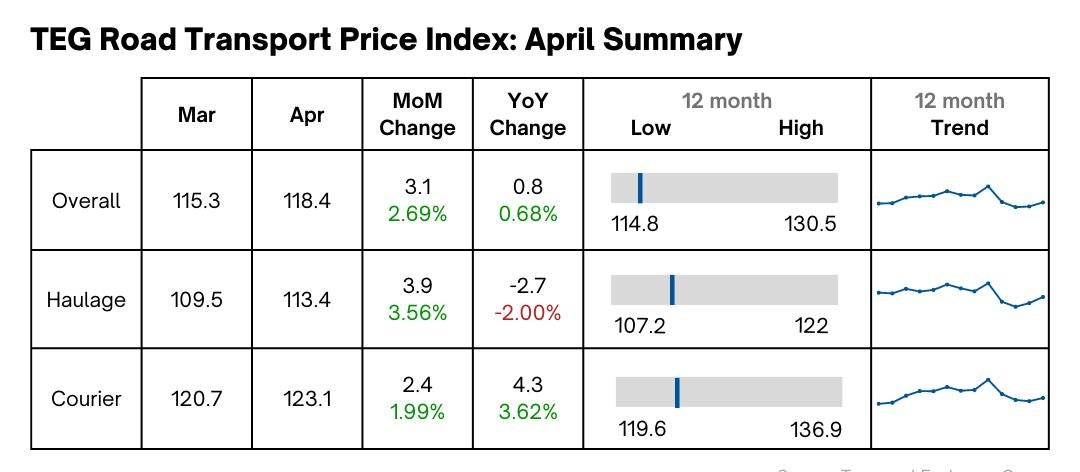
In the face of stubborn inflation, driver shortages and supply chain troubles, it seems falling diesel costs haven’t been enough to keep prices down.
Recent analysis revealed that the UK economy is losing £12 billion a year to supply chain issues. When supply chain costs spiral, they affect businesses’ bottom lines, which is often reflected in price rises being passed onto customers.
For example, even though haulage prices are 2% down, year-on-year, hauliers are having to charge 11% more than they did during the same period four years ago.
Businesses can lessen the impact of supply chain issues through the kind of integrated digitisation Integra offers. With a quarter of the UK’s trucks running empty, digitisation can help hauliers looking to share truck space and create efficiencies.
Falling diesel prices is very welcome news for the industry. It reduces a day-to-day expense for everyone, making every mile cheaper. But it’s clear that there are more permanent problems affecting hauliers’ and couriers’ prices. One of those is the driver shortage, so it’s encouraging to see the government once again taking action to get new drivers on the road. Another issue altogether is supply chain costs. Streamlining operations through digital solutions can help greatly here, so I’d encourage any road freight transport company to build digital tools into everyday processes. Then they’ll be more able to weather any costly supply chain disruptions.
Lyall Cresswell, CEO, IntegraThe traffic volume of the Hupac Group stagnated at 1,104,000 road consignments in 2022. Nevertheless, Hupac achieved a satisfactory financial result. Transport policy support measures are necessary to stabilise combined transport in the current economic downturn.
Last year, the Hupac Group carried 1,104,000 road consignments in combined road/rail and seaport hinterland transport, which corresponds to a slight decrease of 1.8% or 20,000 road consignments. Capacity bottlenecks in Germany in particular had a negative impact. After a strong first quarter with monthly growth rates in the high single digits, traffic slumped in April and June and again in the autumn due to intensive construction activity on the Rhine-Alpine corridor. At peak times, up to 20% of the ordered trains could not run for operational reasons. In the last quarter, an economic slowdown set in due to the unfavourable development of energy prices.
Overall, traffic on the high-volume north-south corridor decreased by 2.9% to 767,000 road consignments. Transalpine traffic through Switzerland declined by 2.1% to 585,000 shipments. In contrast, transit traffic through Austria developed positively with an increase of 9.7% to 44,000 shipments. The south-east and south-west corridors also developed positively with growth rates of 2.9% and 40.3% respectively.
Seaport hinterland traffic also continues to be subject to strong external influences. Keywords here are the global supply chain disruptions caused by COVID-19 with shutdowns in Asia and the uncertainties caused by the war in Ukraine. ERS Railways' maritime traffic from the North Sea ports declined by 3% to 184,000 road consignments.
The turnover of the Hupac Group decreased by 2.1% to CHF 668.5 million. With a net profit of CHF 7.6 million, Hupac nevertheless achieved a satisfactory annual result. Investments reached a high level of CHF 84.3 million as various projects could be resumed after the pandemic break.
Due to high energy costs, energy-intensive industries such as steel, chemicals and paper are particularly under pressure. Hans-Jörg Bertschi, Chairman of the Board of Directors of Hupac Ltd, explained at the annual media conference in Zurich that the base load of combined transport in Europe is falling with the decline in these rail-related transports. In addition, since January 2023, price increases for rail transport in Europe have been significantly higher than those for road transport. At the same time, as the industrial economy stagnates or declines, significant capacity is again available in road transport. This leads to a significant shift of transport from rail to road. In Hupac's transport network, this can be quantified as a minus of 10 to 15 percent for the period January to April 2023 compared to the same period of the previous year, depending on the transport segment.
The sum of negative factors such as the decline in traffic due to the economic situation, high rail costs, falling road freight rates and the chronic instability of the rail network represent a real risk of modal shift, says Bertschi. Although the volume of combined transport in Europe fell significantly in the first quarter, the quality and reliability of the international rail infrastructure has hardly improved. Too many trains are still canceled or delayed for days. If the reliability of the rail infrastructure and the quality of combined transport do not improve, we can expect a further shift back to the roads in the coming months.
Hupac keeps its transport network stable despite a decline in demand. Where necessary, operational concepts are being optimised and overcapacities reduced. Strict cost management in cooperation with its partners helps to overcome the crisis with lean structures and flexible production planning.
However, whether combined transport will be able to maintain its market position in the current situation and, if possible, expand it, depends above all on the transport policy framework. Hupac President Hans-Jörg Bertschi lists a number of measures that would strengthen the marketability of combined transport and secure the successes achieved so far:
• Quality management for shuttle trains in international Alpine transit: Introduction of a consistently effective operational management for international Alpine transit trains of combined transport on the Rhine-Alpine corridor under the management of the corridor's railway infrastructures - a measure that is particularly urgent in view of the forthcoming corridor renovations and construction work on the Rhine Valley Railway. Because of its importance for transport policy in this corridor, Switzerland would have a leading role in providing impetus. This would be done with the support of Italy, which urgently needs a functioning transalpine transport system to safeguard its economy and foreign trade
• Support for the competitiveness of combined transport: Temporarily suspend the annual reduction of subsidies for combined transport until the economic crisis is over. By adjusting the subsidy to the reduced transport volume in the first quarter of 2023, the loss of competitiveness of combined transport can be partially compensated
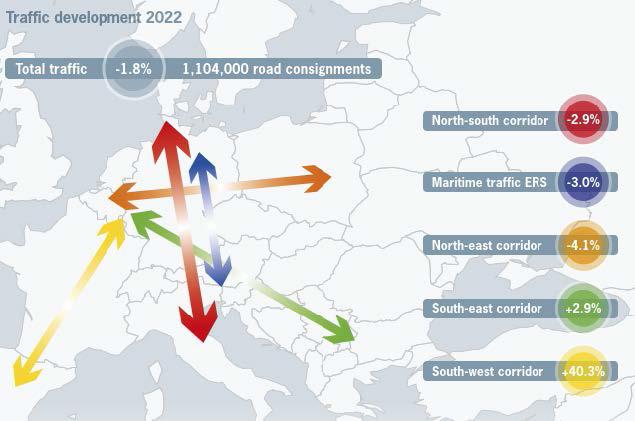
• Continuation of the Rolling Highway until 2028: The Rolling Highway is currently very well used due to the increase in road traffic. The continuation of the Rolling Highway service until 2028 is an appropriate measure to counteract the shift back to pure road transport
• Improving performance through digital transformation: A transparent flow of data along the entire combined transport service chain helps to ensure that capacity is better used and that individual partners can plan better. Existing open systems such as DX Intermodal's Data Hub must become the standard for all combined transport in Europe
Despite the current difficult situation, Hupac is maintaining its investments in terminals, IT systems and network expansion, thus securing the conditions for future growth. We welcome the positive decision of the Swiss Ministry of Transport to finance the major terminal Milano Smistamento, which Hupac will realise in a joint venture with Mercitalia Logistics by 2026, emphasises Michail Stahlhut, CEO of the Hupac Group. This new central gateway terminal in Milan will significantly accelerate the ongoing development of seaport hinterland traffic from the Italian ports to Switzerland and southern Germany.
Other Hupac terminal projects are already in the realisation phase, such as the Piacenza terminal to be completed by 2025, the extension of the Novara terminal by 2025 and the replacement investments in gantry cranes at the Busto Arsizio-Gallarate terminal.
In terms of network development, Hupac is focusing on the expansion of services from the Köln Nord terminal, the operation of which was taken over by the Hupac Group at the beginning of the year. The new Brwinów terminal near Warsaw is being developed as a hub for transports to/ from western and southern Europe. In the core market of transalpine transport through Switzerland, the focus is on the Benelux markets and the economic areas of north-eastern, central and southern Italy. In maritime transport, the Hupac Group pursues a long-term strategy based on its European network. While the northern ports are served by the subsidiary ERS Railways, Hupac Intermodal makes its network available for volumes from the Mediterranean ports.
We are convinced that our competitive, market-oriented combined transport products offer real added value for environmentally and climate-friendly logistics, says Stahlhut. Compared to pure road transport, the Hupac network saved around 1.5 million tonnes of CO2 in 2022, reduced energy consumption by 17 billion megajoules and took 21 million tonnes of goods off the roads. Says Stahlhut: Our long-term corporate strategy is part of the answer to the major challenges facing society, such as climate protection, energy transition and sustainable economic development. We will continue to focus on this in the current year.
Contargo starts new barge service between Dourges and the western Seaports
Contargo has started a new container barge line with two round trips per week between the seaports of Antwerp and Rotterdam and the multimodal terminal in Dourges.
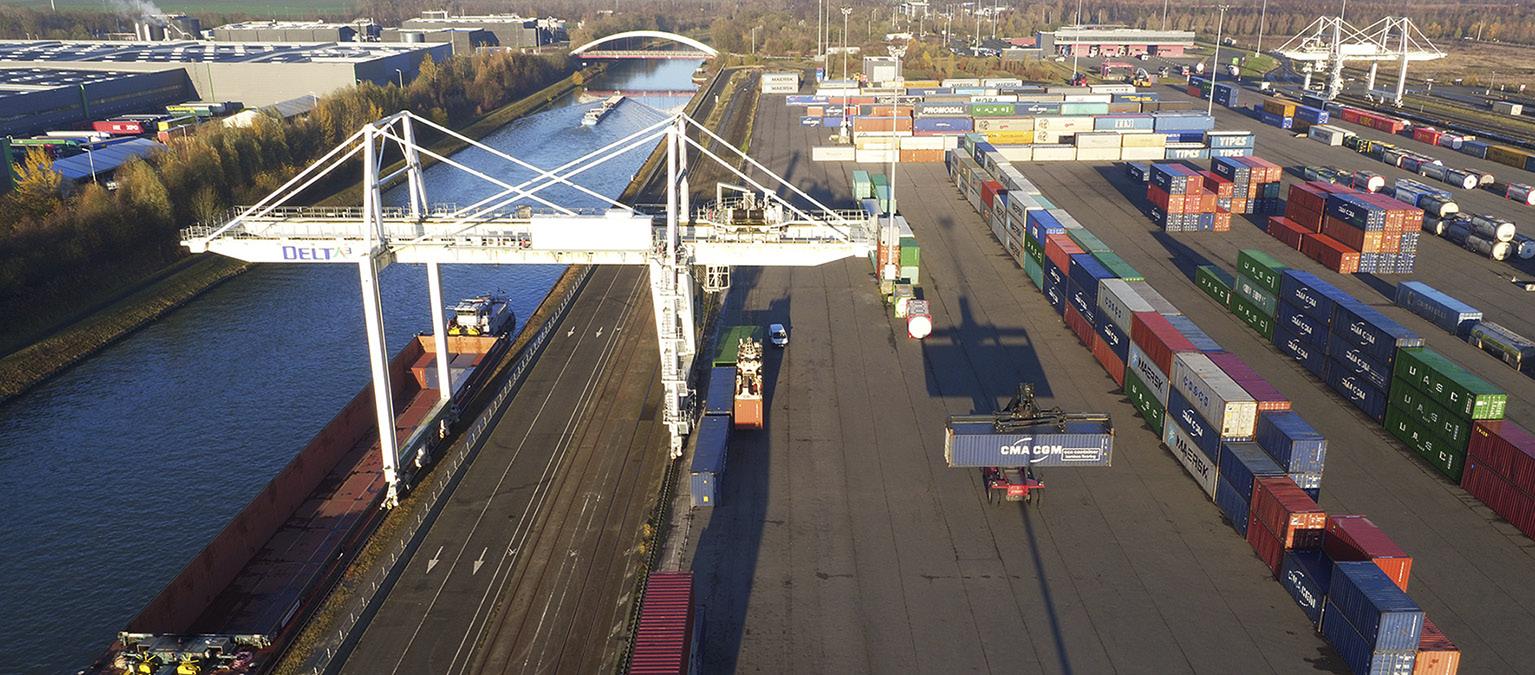
Contargo has expanded its network for container transport by inland waterway in northern France. In addition to its barge service in combined transport via the terminal in Valenciennes, Contargo North France is now also offering direct barge connections between Antwerp and Rotterdam and Delta 3, the LDCT terminal in Dourges.
The service, with two round trips a week, is performed by two push barge units with a capacity of 78 TEU. All types of containers are transported, including dangerous goods (apart from classes 1 and 7) and reefers. Contargo will also organise pre- and on-carriage by truck for these transports. The transit time is 30 hours between Antwerp and Dourges and 40 hours for the Rotterdam–Dourges line.
In order to meet market demand we have decided to expand our network to include the Dourges terminal, where we see great potential for development. This will be in addition to the regular services we have been providing for years now in Valenciennes, the most important terminal in the region for sea containers. Altogether we operate seven barges with a weekly capacity of more than 1,200 TEU for multimodal container transport in northern France.
Gilbert Bredel, Managing Director Contargo North France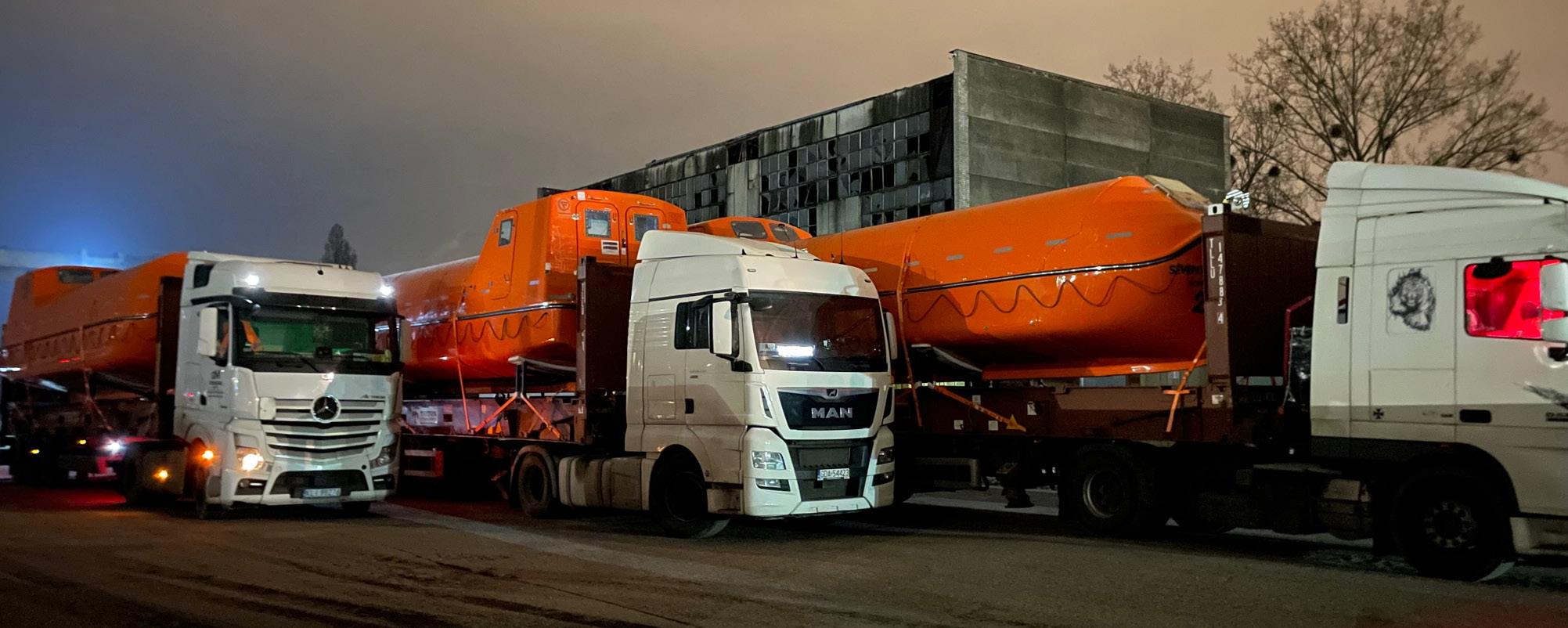
The Polish division of 3p Logistics' projects team are pleased to report an interesting shipment they coordinated from Gdansk to Singapore.

The cargo included four large lifeboats which were made in Poland, measuring 11.5 (L) x 3.00 (W) x 3.50 (H) meters each. From Gdasnk, the lifeboats were collected by truck for onward delivery to Singapore by sea freight. 3p Logistics handled operations such as re-loading & securing the cargo using the appropriate containers.
The cargo is now sailing toward Asia for our satisfied customer!

Gebrüder Weiss is further expanding its presence in the USA, opening an air and sea freight office in Miami, Florida. Miami is a central logistics hub for transports to and from Latin America, Europe, Asia and the Caribbean, explains Mark McCullough, Country Manager USA at Gebrüder Weiss. Miami primarily handles imports from Asia for onward transport to South and Central America, as there are only a few direct routes from Asia. The new location is situated in the immediate vicinity of the international airport, one of the country’s busiest cargo handling facilities. The company currently employs six people in Miami. Headed by Marcin Gonzalez, the location is set to keep growing and become a gateway for transports to the Latin American markets.
Since the country organization was founded in 2017, Gebrüder Weiss has continuously expanded its network of locations and services in the USA. Today, in addition to air and sea freight services, the logistics provider also offers its customers national and international full load services, heavy transports and specific logistics solutions, with the portfolio ranging from goods warehousing and local distribution to e-commerce solutions. Gebrüder Weiss has firmly established its brand and services in the market over the past five years. Our customers benefit from a globally integrated network with a high level of local expertise, says Mark McCullough. Only recently, the company moved into a larger head office in Chicago and opened another logistics warehouse. Gebrüder Weiss operates a total of five warehouse locations in the USA and employs 130 people in Atlanta, Boston, Chicago, Dallas, El Paso, Los Angeles, New York, San Francisco – and now also in Miami.


Marine Repair Services-Container Maintenance Corporation responds to burgeoning growth of container traffic through the region
The Marino Group announces it has opened a 34-acre depot to meet the needs of the container and intermodal trade through the growing port of Mobile and the U. S. Gulf. The new facility provides container maintenance and repair, loaded and empty container storage, warehousing, chassis start-stop and repairs, grounded temperature-controlled unit pre-trips and genset rental programs. The new facility is open and fully operational as of today.
The Marino Group’s Marine Repair Services-Container Maintenance Corporation (MRS-CMC), a leading supplier of depot services, unmatched dry and reefer equipment maintenance and repair, equipment sales drayage and over-the-road services, is responding to the needs of the burgeoning trade in the market. In the last decade, the port has experienced doubledigit growth every year. Recent statistics indicate that for 2022, there was an 11 percent increase in container through-put.
Establishing our presence with our state-of-the-art depot in Mobile demonstrates our commitment to strengthening our position in the Gulf. The new depot has plenty of capacity for growth, top-of-the-line equipment and a strong team of professionals ready to serve the market.
David Miller, Senior Director of Operations, MRS-CMCThe depot is conveniently situated less than a mile from the marine terminals at 1251 Baker Street and complements terminal capacity issues. To meet the needs of the trades in the region, the new depot includes load lifts, empty handlers, a chassis stacker and downstacker and reefer plugs.
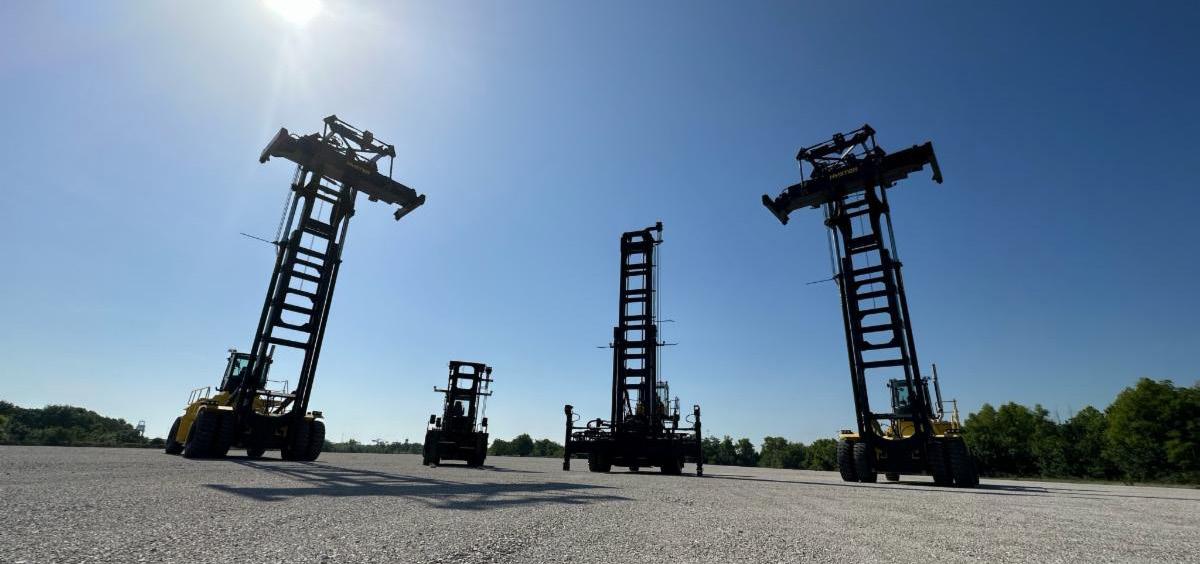
For more than 50 years, since containerization in shipping became a reality, The Marino Group has been responding to the needs of the industry with services that enhance and support supply chain fluidity. We say that the Marino Group has been looking at the future for a half-century.
More outbound containers at ports of China; CAx over 0.6 since of 2023
62% slump in average container prices* Y-O-Y in China
Increase in shipments to Southeast Asia is reflected in an 85% drop in pickup charges on the Intra-Asia trade lane since January 2023
Asia's maritime and supply chain industry is on a tumultuous ride, experiencing significant disruptions in trade patterns resulting in container prices dipping, according to the April Asia container market forecaster published by Container xChange, an online container logistics company that provides a marketplace, an operating infrastructure, and a layer of services like payments to container logistics companies globally.
The year-on-year comparison of the Container Availability Index (CAx) in Shanghai presents some interesting insights into the problem of excess containers at the ports in China. Traditionally, the CAx values in Shanghai during Q1 have been lower than the 0.5 balance due to a higher number of outbound containers compared to inbound containers. However, this year, the trend is just the opposite with CAx value over the 0.6 threshold. The current trend is attributed to the drop in exports during Q1, owing to reduced demand post the peak season quarter (October- December) and the Chinese New Year shutdowns.
Consequently, the number of containers at ports is usually lower during the Q1 of last two years. However, the situation this year is different. With a demand deficit and a higher number of containers lying idle at the ports, there is a significant rise in inbound containers in China as observed in the Q1 of 2023. This shift in the trend is reflected in the CAx graph below.
Since the beginning of week 37 (September) in 2022, the Container Availability Index (CAx) has consistently remained higher than the previous two years. This indicates an increase in inbound containers at the port of Shanghai since September and a continued upward trend. The trend is also observed in Yantian and Tianjin ports in China.
Our research and interviews with Chinese customers reveal that the post-Lunar New Year recovery in the industry has only recently started and is below the normal expectations for this time of year. According to Descartes, US imports have declined by 16.2% from January, 25% year on year, and 0.3% compared to pre-COVID February 2019.

The Container Availability Index measures the ratio of inbound to outbound containers port-wise and a reading above 0.5 suggest more inbound than outbound containers at the ports. It suggests that ports in China currently have a higher CAx value than in 2019, 2020, 2021, and 2022, indicating a significant container surplus in China. A higher CAx index rating means that there are more inbound containers than outbound containers. Thus, if China's outbound containers are low, it suggests that main import countries have not been importing goods from China as usual. This trend is apparent in the industry as well.
According to the analysis by Container xChange, we compare the container prices between March of this year and the same period last year, there has been an average fall of 62% in prices across China. The table below provides a detailed breakdown of the decline in prices at different ports in China. It is noteworthy that this quarter (January to March) has been relatively more stable compared to the overall price fluctuations throughout the year.

*Average prices for containers are the prices at which containers are available to buy at these port locations.
It is evident that there has been a decline in average container prices in China since the past one year. However, the graph below indicates that the prices have remained relatively stable during the first quarter of 2023. This observation suggests that if there is no further decrease in prices, it is possible that the container prices have already hit the bottom and are not expected to fall any further.
On one hand, concerns are being raised due to the shifts in supply-chain and weakened global demand, as companies are diversifying their trade and increasingly sourcing goods from Southeast Asia. On the other, China's export numbers for March have exceeded expectations, with a significant increase of 14.8% in US dollar terms from the previous year, as reported by China government data.
The unexpected rise in exports can be attributed to improved demand from many Asian countries and Europe, as well as the resumption of production in China's factories. This is a positive glide considering the container pileup on China ports in the beginning of 2023.
The uptick in shipments to South-East Asian nations is evidenced by sliding pickup charges on the Intra-Asia trade lane. Average pickup charges dropped by 85% since January 2023.
The shipping industry is on the verge of completing its lap in terms of container prices bottoming out, excessive inventory, empty containers and everything in between. Once it's through with its rep, the demand will crop back up. The alluring box rates present for traders offer a ray of hope for the growth of container demand. As the spot rates on significant container trade lanes settle down to levels like those before the pandemic, the trend of decontainerization that prevailed from 2020 to 2022 is now reversing. The container freight rates reached record heights during the peak of the coronavirus pandemic, which resulted in cargo overflowing from containers into minor bulk vessels.
Christian Roeloffs, cofounder & CEO, Container xChangeHowever, we cannot compare it to the demand that existed until 2021, as there is still a surplus of inventory that has not been exhausted yet. China has already initiated the process of diversification, although it is still too early to see any visible trade patterns. However, we have noticed a rise in intra-Asia trade. As a result, capacity needs to be adjusted to regions with more stable rate levels and demand to ensure more resilient supply chains in the future. This relocation strategy will decrease reliance on one production and supply chain hub and move towards a smaller and more diverse trading pattern.

The Asia-Europe container shipping lane, which is critical, has experienced a rapid decrease in demand since the summer of 2022, resulting in a sharp decline in container shipping spot freight rates. Carriers have responded by cutting services or cascading capacity to regional trades. However, this has left many empty containers stranded across Europe instead of being returned to Asia and other origin markets for loading with more exports. This accumulation of boxes will gradually decrease when export demand rises again, with the majority being returned to Asia.
China's expertise in developing world-class port infrastructure that can be an asset to strengthen global trade ties and create opportunities for collaboration, despite potential challenges for western countries to compete in this domain. While US and European companies are signalling their intent to shift manufacturing to India and other countries in Southeast Asia, the lack of port infrastructure in these regions remains a major obstacle, said Christian Roeloffs as he commented upon the current state of the container shipping in Asia.
The lack of harbours able to accommodate large ships in other Asian countries means that investment is essential to handle the megacontainer ships that drive world trade. Therefore, it will take a great deal of investment from other Asian emerging markets to catch up with China, and it generally takes port operators up to five years to build a new terminal.
The data from research group Drewry reveals that the rest of Asia needs significant investment to match the capacity of Chinese harbours, which have become essential for transporting goods from east to West. China's investment of at least $40 billion between 2016 and 2021 in coastal port infrastructure has allowed the country to handle the equivalent of 275 million 20ft containers at its ports last year, up to 80% more than the amount processed annually by all countries in Southeast Asia combined, according to figures from data group Dynamar and the UN. In contrast, the rest of Asia has only 31 port terminals capable of handling the largest ships. Large vessels make up about two-thirds of the shipping capacity for services between East Asia and Europe, according to data provider MDS Transmodal.

Clients can move freight more efficiently to provide exceptional service in volatile market conditions
E2open Parent Holdings, Inc. (NYSE: ETWO), the connected supply chain SaaS platform with the largest multi-enterprise network, announces an expanded partnership with Loadsmart, allowing shipper clients to access instant pricing on any lane from Loadsmart’s network of more than 45,000 carrier partners without leaving e2open’s Transportation Management (TMS) application.
Loadsmart is now included in e2open’s Carrier Highlight innovation, which offers shippers access to featured transportation providers’ rates and capacity when favorable. The enhancement gives clients a streamlined and automated way to identify cost-saving opportunities while getting reliable service from a preferred e2open carrier partner showcased within the application. The shipper can seamlessly onboard Loadsmart to benefit from the currently highlighted cost savings and access Loadsmart as a new carrier partner for future savings opportunities.
With API connectivity in e2open Carrier Marketplace, pricing comparisons happen instantly, enabling shippers to take immediate action. In addition, carriers in the network are afforded exposure to more shippers. As part of the Carrier Highlight workflow, e2open TMS users are presented with optimal transportation options dynamically during load planning, when there is an opportunity to tender the shipment at a lower cost.
to being leaders in their space. Our expanded partnership with e2open allows all shippers to react quickly to market dynamics and move freight reliably and sustainably at an optimal cost—all from within the e2open TMS. We look forward to continuing to push the frontier of end-toend freight management and to empower our clients further as they progress their supply chains toward digital maturity.
Felipe Capella , CEO, LoadsmartLoadsmart has been an e2open strategic partner since 2020; the expanded partnership provides e2open clients with access to real-time rates across their entire transportation network with the opportunity to achieve savings in all modes.
We formed our partnership with Loadsmart around a shared ambition to advance transportation management and seamlessly connect logistics to larger enterprise supply chain strategies. In this next phase of our partnership, clients will be able to simplify rating complexity across their entire transportation network and take advantage of the best rates per shipment to move goods cost-effectively and deliver reliably on customer commitments.
Peter Hantman, COO, e2openA fragmented landscape of essential service providers means access to one central control tower that integrates and synthesises all of these is an essential component for informed decision making and future success, says Raft’s Lionel van der Walt
Technology is bringing the human back into freight forwarding and proving to be a catalyst for change management, forcing us to radically rethink the nature of work. And yet many in the industry are still failing to benefit from the opportunities driven by digital transformation, which go beyond simply adopting smart automation.
This can be for a number of reasons, including a fear that technology, and Artificial Intelligence (AI) in particular, will replace roles, whether by eliminating specific jobs, or by stepping into the freight forwarder’s space.
The tech is only the beginning of a change process, which can enable our industry to go beyond transactional workflows and concentrate instead on the value ads that only humans can bring – expertise, relationship building, nuance, and creativity. This human know-how is augmented by the technology and especially AI applications, which automate timeconsuming tasks across the entire shipment lifecycle.
Artificial intelligence is having a revolutionary impact on freight forwarding by completely transforming how forwarders work. It’s helping freight forwarders in various ways, such as:
Streamlined workflows and processes: AI automates a lot of cumbersome workflows and manual work that forwarders do, from manual data entry and document compliance to invoice processing and reconciliation. This frees up teams to refocus their time on more meaningful work like customer value-add activities or strategic initiatives. By automating manual work, forwarders have the ability to scale efficiently without increasing overhead costs.
Improved logistics planning: AI is helping forwarders to optimise their logistics planning by analysing data on shipping routes, transportation modes, and delivery schedules. This analysis can help to identify the most efficient and cost-effective logistics solutions for their clients.
Actionable visibility and analytics: AI can help to improve visibility across the supply chain, enabling air freight forwarders to track shipments in real time and provide up-to-date information to their clients. This can help to increase customer satisfaction and reduce the risk of delays or disruptions. Accessibility to real-time information has the additional benefit of ensuring better collaboration and transparent communications between teams – guaranteed to make life easier for forwarders.
Risk and performance management: AI can help to identify potential risks and hazards along shipping routes, such as adverse weather conditions, geopolitical events, or port congestion. This allows freight forwarders to plan alternative routes and avoid delays. AI can also help to analyse team and client performance, to identify operational bottlenecks so forwarders can resolve issues faster and act as a strategic lever for their businesses, working to improve things like cash flow or comply with shifting regulatory requirements, for example. In this way, AI is a crucial cost and efficiency lever that facilitates revenue growth.
Ultimately, AI is ushering in a new wave of smart logistics by helping freight forwarders to increase efficiency, reduce costs, and improve customer satisfaction.
Back in 2017, our co-founders created Raft, a company that was ‘AIfirst’ in supply chain. They felt like they’d caught the first wave. A new way of tackling an age-old problem with tools – machine learning – still in their infancy. Machine learning (often interchangeable with ‘AI’) back then was for innovations like self-driving cars, but it wasn’t really applied to traditional industries like supply chain management or freight forwarding.
Even in the rare cases that AI and supply chain were mentioned in the same breath, the value of AI was always discussed from a top-down point of view, like modelling complex supply chains using big data, instead of looking at operations from the ground-up. One of the main reasons for this oversight was simple: companies with operational know-how didn’t have machine learning engineers, and vice versa. Put another way, the venn diagram of companies with access to both profiles looked like a figure of eight.
Raft’s founders saw an opportunity to empower freight forwarders with a smarter way to manage and control their shipments and finally break free from the shackles of tedious manual processes and workflows and focus on delivering unprecedented value to their shippers. Its platform extends beyond streamlining internal operations, however. Its integration partner ecosystem provides forwarders with the ability to gain a centralised view of all their operations, and the ability to automate processes across the entire lifecycle of a shipment, from payments to carbon emissions reporting, making it the ultimate supply chain control tower.
Powered by AI, Raft is able to offer a sharper, smarter, and more efficient way for forwarders to communicate, operate, and serve their shippers. Freight forwarder customers ultimately benefit as forwarders have more time to create the experience that shippers have grown to demand and expect.
AI has the potential to transform the freight forwarding industry by improving efficiency, visibility, and customer service, and reducing costs. The full potential of AI for the industry has not yet fully been realised. And with a constantly expanding and fragmented landscape of essential service providers, access to one central control tower that integrates and synthesises all of these together is an essential component for informed decision making and future success.
Lionel van der Walt , Chief Growth Officer, Raft, an AI-driven start-up that automates operations for freight forwarding
Silk Way West Airlines partners with customer-experience leader cargo.one to deliver the most rapid and user-friendly booking option for forwarders
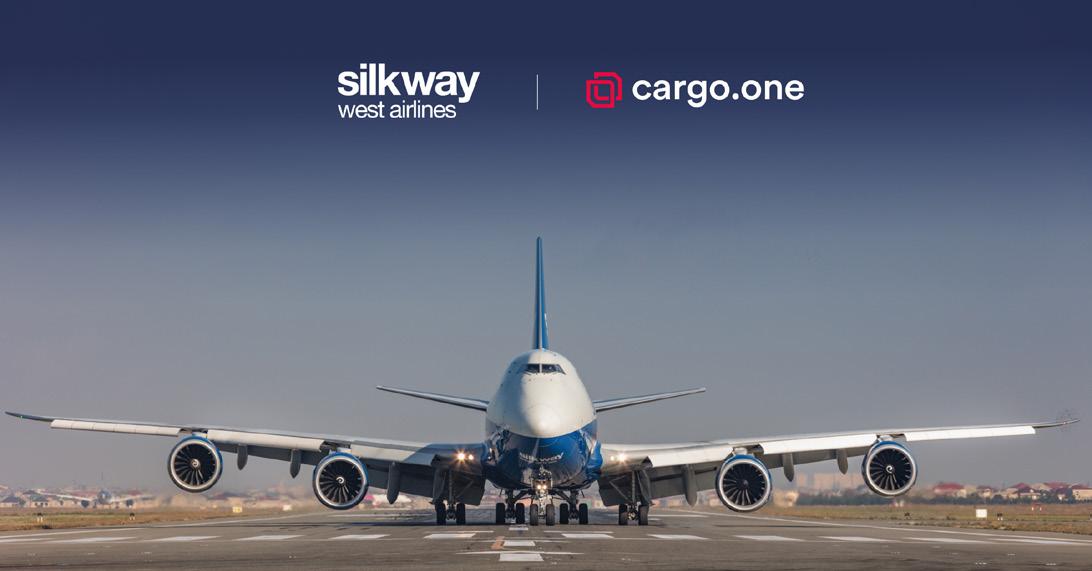
cargo.one will equip the airline with best practices to boost digital booking adoption
cargo.one’s unrivaled innovations, such as cargo.one 360leap, provide the airline with the ability to delight forwarders and win more business
Silk Way West Airlines and cargo.one today announced a global partnership to bring the airline’s freighter capacity to the air cargo booking marketplace. By joining customer experience advocate cargo.one, favored by forwarders in all important markets globally, Silk Way West Airlines will expand its digital footprint and align with the highest standards for digital air cargo booking. The airline also gains the market experience and actionable support of cargo.one teams to accelerate digital sales adoption for its capacities.
Headquartered in Baku, at the heart of the Silk Road, Silk Way West Airlines is the largest cargo airline in the Caspian Sea region. The airline carries over 420,000 tonnes of freighter capacity annually, utilizing a fleet of 12 Boeing 747F aircraft with front-loading capabilities. Silk Way West Airlines is progressing an impressive strategy of expansion, in which maximizing its digital distribution to every relevant market plays a vital role. The strategic location of Baku as a hub helps Silk Way West Airlines to span over 40 key destinations across Europe, the CIS, the Middle East, Central and Eastern Asia, and the Americas. Silk Way West Airlines is unique in building an attractive digital offering for larger shipments, where the market is currently under-served. Freight forwarders have long been attracted to the airline’s connectivity, which cargo.one will now deliver to agents with digital speeds and greater convenience than ever before.
Our partnership with cargo.one is an important milestone in our ambitious digitalization journey. By bringing our capacity to cargo.one’s expansive customer base, we will both broaden our reach and enable many more forwarders to benefit from our services. cargo.one and Silk Way teams are collaborating very closely, and we are relying on their proven expertise to enhance our buying journeys and drive up our share of digital air cargo sales.
Wolfgang Meier, President, Silk Way West Airlines
For the many thousands of agents who are thriving with digital bookings on cargo.one, the addition of Silk Way West Airlines' capacity is fantastic news. Due to its keen awareness of the changing market, Silk Way West Airlines is now putting cargo.one, as the best-in-class digital enabler, at the center of its digital sales growth trajectory.
Moritz Claussen, Founder& Co-CEO, cargo.one
cargo.one’s more than 40 airline partners profit from its targeted innovations that enable forwarders in dozens of countries to book more easily and often. Silk Way West partners with cargo.one shortly after the launch of its revolutionary cargo.one pro and cargo.one protect solutions for instant and seamless agent-to-agent bookings.
A transformed digital booking experience for all import and export shipments now makes cargo.one the air cargo one-stop-shop for many agents worldwide.
project44, the leader in supply chain visibility, and Nexxiot, the leader in Asset Intelligence, today announced a partnership that unlocks new areas of value for joint customers to deliver realtime network insights and IoT-centric conditional and location monitoring.
As logistics innovators, project44 and Nexxiot are substantially expanding their combined capabilities to transform the client experience for shippers and other logistics stakeholders around the globe. This partnership allows customers to integrate conditional and location data with the largest supply chain network in the world. Prior to this partnership, shippers, cargo owners and supply chain participants lacked critical asset intelligence and insight, exposing them to unacceptable risks, lack of visibility and insufficient process control.
This partnership gives joint customers enhanced ETAs using carrier milestones, signals, and historical performance with precise GPS tracking. Additionally, project44 and Nexxiot customers now have capabilities to drive advanced risk management strategies on order and inventory health. Finally, joint customers also unlock new use cases to better manage asset efficiency.
At project44, we strive to provide the most comprehensive supply chain visibility for all of our customers, and combining forces with Nexxiot is a huge step towards that goal. This partnership enhances the insights of our Movement platform with essential real-time asset level tracking, benefitting everyone with the new standard in actionable insights.
Jett McCandless, Founder & CEO, project44This partnership between project44 and Nexxiot adds vital real-time asset-level monitoring to enhance project44’s Movement platform by improving data-driven assurances on safety, security and compliance.
We are focused on supporting our customers with very large operational and service ROI opportunities. The decision by Hapag-Lloyd to go full-fleet with smart containers in record-time has forever changed the industry. We are inspired by the leadership position of project44 and together keep pushing forward to create the most accurate and insightful data to the benefit of our joint customers.
Stefan Kalmund, CEO, Nexxiot’sTogether, project44 and Nexxiot unlock new and innovative features and use cases that create immense value for BCOs globally and deliver unmatched value for the global supply chain marketplace.
project44 is on a mission to make supply chains work. As the supply chain connective tissue, project44 operates the world's most trusted end-to-end visibility platform that tracks more than 1 billion unique shipments annually for over 1,300 of the world's leading brands, including top companies in manufacturing, automotive, retail, life sciences, food & beverage, CPG, and oil,
chemical & gas. Using project44, shippers and carriers across the globe drive greater predictability, resiliency and sustainability.




Easy access to your company overview.
Showcase the brains behind your business and have a searchable directory with profiles for each of your staff members.
Allow your customers to request a quotation directly from the app.
A simple and user-friendly contact form to handle any customer enquiries.
The perfect feature for keeping your customers updated with latest news and posts.
Air freight? Sea freight? Include all your company services.
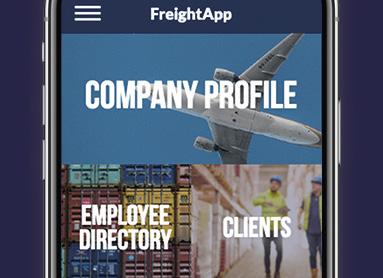
Track your shipment’s location and delivery with your chosen third-party platform intergrated with your app.
List your capacity / return loads with real-time notifi cations directly to your customer mobile devices.
Recruitment platform on which companies can post their latest vacancies. Candidates can apply directly from the app.

Make it easy for clients to get in touch with their requirements directly from the app.
Schedule your notifi cations to be sent at specifi c times or send geofenced notifi cations to your clients based on their location.
With registrations up 49% on last year, visitors to Multimodal 2023 are set to benefit from a cutting-edge line up of speakers during the free, three-day conference. In a new addition to the programme, attendees can also benefit from skills training and mentoring thanks to Google Digital Garage, which will deliver a broad range of digital and social media tactics to visitors.
Running across four theatres, the core conference theme focuses on sustainability, resilience, technology and people, and boasts a stella lineup of leading industry speakers. These include:
• Jon Gore, Head of Primary & Global Logistics, Tesco
• Sally Wright, Head of Delivery Transport Hub, Nestlé UK and Ireland
• John Lucy, Director, Liverpool Freeport
• Hizmy Hassen, Chief Digital & Supply Chain Officer, Apollo Tyres
• Christian Pryce, Chief Commercial Officer, Port of Dover
• Joep Kusters, Senior Vice President, Head of Europe, Coyote
Discussions and themes are built around the most pressing issues and relevant industry topics, covering:
• Peak Season Preview 2023
• Digitalisation of International Trade and Transport
• A Rail Retail Revolution
• Roadblocks to sustainable freight, and how to overcome them
• Cargo integrity
• The UK’s new approach to import controls – understanding the Target Operating Model
Multimodal brings together businesses, thought leaders and associations from across the supply chain industry from June 13th to 15th, with the most outstanding firms and individuals recognised at its glittering Awards ceremony.
The addition to this year’s conference is the Google Digital Garage, which offers a range of courses and learning for some of the most sought-after marketing skills, whether visitors are looking to grow their business, start a career, or just want to try something new.
The programme is made up of eight immersive 15-minute power sessions and 11 in-depth 45-minute sessions covering topics such as:
• Digital Marketing Strategy
• Boost Online Sales with a Google Business Profile
• Writing for social media
• Build Engaging Presentations
• Get Your Business Visible on Google
Interest for the 2023 event has been bigger than ever, with record numbers of visitor registrations, new and existing exhibitors, and outstanding nominations for the Awards.
Commenting on this year’s visitor programme, Multimodal 2023 Event Director Robert Jervis said: We are delighted to be joined by Google and its Digital Garage as it will be bringing a new twist to the support we offer visitors. Digital skills are vital, whatever area of the supply chain you are in or what level you are. Visitors will be spoilt for choice thanks to our full conference programme featuring industry experts, plus the new digital training sessions. Multimodal is a unique industry event; now it offers additional value thanks to the Google Digital Garage.
Digital technologies are truly transformative and can help businesses and individuals across the UK to increase their earnings, boost their productivity and unlock their full potential. As a former business owner myself, I understand how tough it is to know where to turn to for advice. That’s why we’re providing hands-on support as part of our nationwide digital skills drive to help equip more people with invaluable skills that help to create jobs and economic opportunities.
Debbie Weinstein, Managing Director, Google UK & IrelandFind out more about Multimodal 2023 via https://www.multimodal.org. uk and view the full seminar programme here: https://www.multimodal. org.uk/conferences-2023#/seminars

On the largest transport exhibition “air cargo Europe” in Munich Silk Way West Airlines, one of the leading cargo airlines in the Caspian and Central Asian region, jointly with Euroavia International announces Caspian Air Cargo Summit 2023, to be held at the JW Marriott Absheron Hotel in Baku from October 23-25, 2023. This event will bring together key players of the air cargo industry from all over the world to discuss industry trends, challenges, and opportunities.
Caspian Air Cargo Summit 2023 will feature a diverse range of topics, including logistics, transportation, e-commerce and more. Attendees will have the opportunity to exchange ideas and best practices, and to explore new business opportunities. The Caspian Air Cargo Summit 2023 promises to be an engaging and informative event, and Silk Way West Airlines is committed to ensure a rewarding and productive experience for all participants.
We are delighted to have Caspian Air Cargo Summit 2023 back on the agenda this year. It is the number one air cargo summit in Central Asia, bringing senior global executives together in a vibrant and exciting region at the heart of one of the world’s key trade corridors. The event will provide participants with relevant insights into the growth of air cargo activities in the region as well as not-to-be-missed networking opportunities. As Central Asia’s leading cargo carrier, we are looking forward to welcoming participants from all over the globe. Wolfgang Meier, president, Silk Way West Airlines
I am really delighted that Caspian Air Cargo Summit 2023 will return this autumn after a four-year hiatus. Caspian Air Cargo Summit has always attracted key air cargo professionals to Baku for great networking, high-level conference sessions and superb entertainment. This year’s event will focus on the Europe-Asia trade lane, e-commerce, cargo aircraft, innovation in logistics, the sustainable supply chain, and the global market outlook. Caspian Air Cargo Summit 2023 is the ideal one-stop platform to find out about the latest developments in the air logistics industry.
Lars Gunnar-Comen, founder & director, Euroavia InternationalFor more information about the Caspian Air Cargo Summit 2023, including sponsorship opportunities and registration details, please visit the event website at www.caspianaircargosummit.com. Registration for the Caspian Air Cargo Summit 2023 is now open.
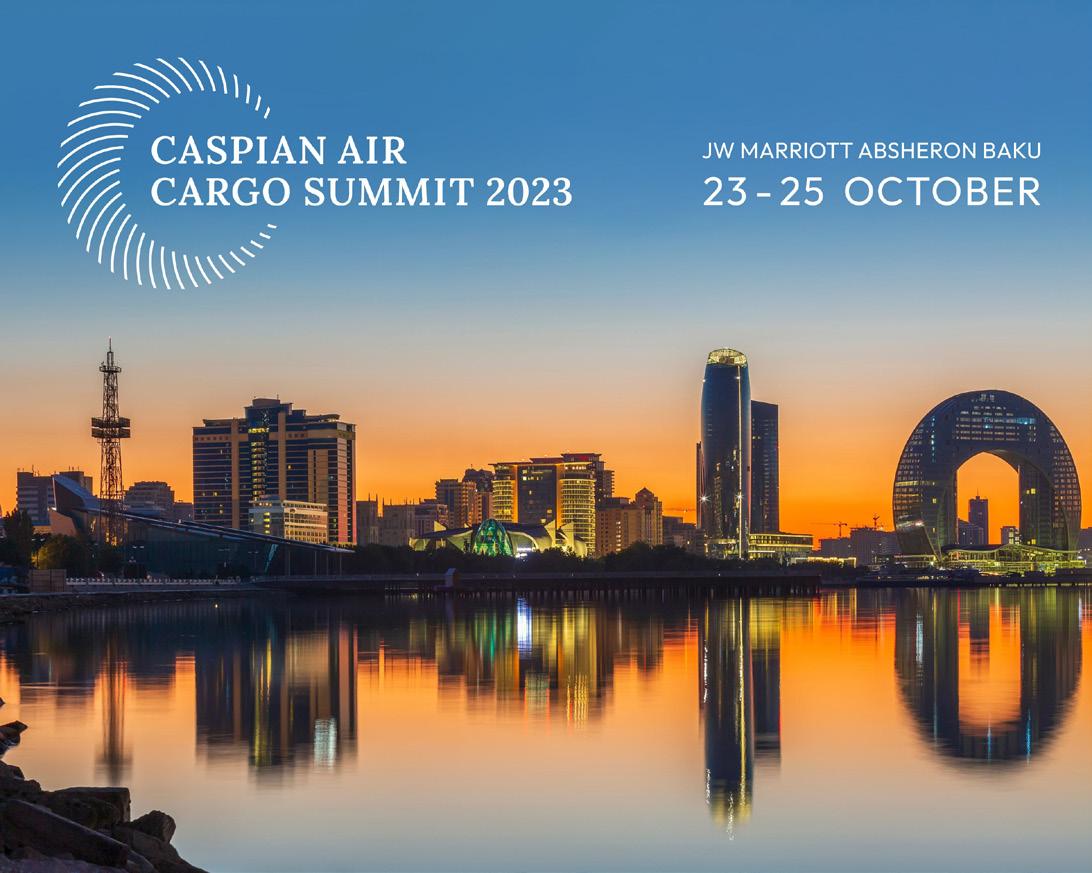
TT Club and ICHCA are once more partnering with TOC Europe to present the Safety Village at the Conference and Exhibition in Rotterdam (13th to 15th June). The three organisations are providing a focal point for discussions, presentations and promotion of innovations that have either already led to a safer supply chain, or aim to in the future
Following the success of both last year’s Safety Village launch at TOC Europe and the Innovation in Safety Awards presented in February TT and ICHCA are continuing with their joint campaign to make the international supply chain a safer working environment for everyone involved in cargo handling, and more secure and sustainable for the cargoes and equipment involved in global trade.
Featuring an enlarged networking area and a stage with presentation facilities, the Safety Village will be the venue for workshops and panel sessions throughout the three days of the TOC Europe event. It will also provide opportunities for companies to showcase their innovative safety devices, processes and products. Dedicated exhibition pods for past entrants of the safety award will be available within the Village at a discounted rate offered by TOC. The united aim is to champion safety in the supply chain and to help develop new solutions for managing risks.
It has been TT’s consistent mission to increase the levels of safety across the myriad of operational functions that constitute the global supply chain. We are delighted that our campaign has continued to attract substantial interest across the industry, again demonstrating the depth of commitment that exists to enhance safety and the will to employ significant resources to minimise risk. The prominent positioning and extensive facilities of the Safety Village at TOC Europe will help bring together such like-minded companies and individuals to further the visibility of their innovations at this leading industry forum.
Peregrine Storrs-Fox, Risk Management Directorat leading international freight transport insurer,
TT ClubThe two organisations’ ongoing efforts have highlighted numerous ground-breaking innovations with multiple applications to improve safety. Richard Steele is CEO of ICHCA International, the representative body for cargo handling operators across the globe. He comments, In the recent past, our efforts together with TT have helped promulgate safety innovations including Hapag Lloyd’s Cargo Patrol that detects suspected mis-declared dangerous goods; terminal automation advances from Kunz and Yardeye in cooperation with CSX Terminals; VIKING Life-Saving’s fire suppressant systems, as well as safety devices developed by PSA International and Cargotec. The awards early this year added to these with APMT’s Vessel Inspection Mobile App; Exis Technologies and Intermodal Telematics BV (IMT) innovative Tank Container Temperature Monitoring. However there are many, many more innovative ideas are out there and we are committed to giving them the oxygen to grow. The Safety Village at TOC in June will certainly fill the air with a fervour for safety.
Representatives of both TT and ICHCA will be at the Safety Village for the duration of TOC Europe, and they would encourage innovators in the safety sphere to embrace the opportunities it affords. There will be a variety of options from five-minute speaking slots to more detailed workshops. To register interest please contact riskmanagement@ttclub.com
On April 23, the freight industry witnessed an extraordinary event that brought together 100 delegates from across the sector. The FORWARDER events Manchester, held at the stunning Castlefield Rooms, proved to be a memorable day of knowledge sharing, networking, and celebration.

The event kicked off with great enthusiasm, thanks to the remarkable hosting skills of Jamie Breese. With his engaging presence, Jamie succeeded in keeping the attendees captivated and entertained throughout the day. His ability to connect with the audience added an extra spark to the event, setting a positive tone for what was to come.
The choice of venue, the Castlefield Rooms, proved to be a masterstroke. Not only was it beautiful, but it also provided ample space to accommodate the event's various activities, which were spread across two rooms. The organisers' attention to detail ensured that every aspect of the venue, from the seating arrangements to the lighting, contributed to the overall experience of the attendees.
The event featured a diverse range of activities that catered to the interests and needs of the delegates. Mastermind sessions offered valuable insights and discussions on industry-related topics, allowing participants to exchange ideas and learn from each other's experiences.

Of particular significance was the keynote speech delivered by Saul Resnick, an industry expert from DHL. With a focus on technology and sustainability, Saul's presentation shed light on the latest developments in the freight industry and their implications for the future. The audience was captivated by the thought-provoking discussion, gaining valuable insights and perspectives to apply in their own professional journeys.
Highlighting the event was the inspiring panel discussion titled "Women in Freight." This session provided a platform for prominent female figures in the industry to share their stories and insights. Chrissy Nichols of Atlantic Pacific, Alison Lindfield of Toll Group, Lesley Batchelor of Export Bootcamps, Jo Pick of Wincanton, Nicole Shaw of Streamline Shipping, and Laura Odell of DG International left a lasting impact with their powerful narratives. Their experiences and valuable advice resonated with the audience, empowering and motivating individuals to break barriers and excel in their careers.
The event's grand finale took place at Barca with Fr8 North, where attendees had the opportunity to unwind and network in a relaxed and informal setting. This enjoyable gathering allowed participants to forge new connections, exchange ideas, and establish valuable professional relationships that will undoubtedly shape the future of the freight industry.
In summary, the FORWARDER events Manchester was a resounding success, leaving an indelible mark on the freight industry. The event showcased the power of bringing professionals together in a collaborative and supportive environment. It provided a wealth of knowledge, networking opportunities, and inspiration for everyone involved. The organisers' meticulous planning, coupled with the impressive lineup of activities and speakers, ensured a memorable and impactful experience for all attendees.
As the curtains closed on this remarkable event, participants departed with a renewed sense of purpose, armed with valuable insights and connections to propel their careers forward. The FORWARDER events Manchester will undoubtedly be remembered as a milestone in the freight industry, inspiring progress, and fostering collaboration among its passionate professionals.



Final word must again go to our amazing sponsors, Alison at Toll Group, Jake at Seetec Outsource and Paul at CDN Consular.



Interactive conference will give those working in logistics the chance to influence election manifestos amid “dire economic forecasts” and continued issues with current trading arrangements
Trade Unlocked is being organised in partnership with the British Chamber of Commerce, International Chambers of Commerce and business leaders.
Businesses of all sizes, from all parts of the UK economy are invited to attend the conference for free with special help available for SMEs.
Trade Unlocked 2023, a one-day event at the Birmingham NEC on Tuesday the 20th June, will bring businesses of all sizes, from all parts of the economy together with decision makers and trade experts with invites also extended to high profile Government and Opposition figures.
The interactive conference will draw on the expertise and experience of all delegates to find solutions to the challenges of the current trading environment and opportunities for the decade ahead. Businesses can register for the event for free using the code: TU23Logistics
The evidence and recommendations from Trade Unlocked will be used to influence manifestos ahead of the next General Election.
Trade Unlocked has been announced after the IMF published their latest forecast showing that the UK economy will shrink by 0.3% this year, the worst prediction of all G7 nations. Similarly, the ONS confirmed UK goods exports are also trailing G7 competitors and the UK economy saw no growth last February. Latest estimates further suggest that growth is still badly impacted by unprecedented labour shortages.
The event has been organised in partnership with the British Chambers of Commerce, the International Chambers of Commerce and other high profile business leaders with policy support from the UK Trade and Business Commission.
The next general election presents a chance to influence election manifestos and set a course to reverse economic stagnation with sustained economic growth. We simply cannot afford another decade of lost growth which could relegate the UK to being a second rate economy. UK business is much better than that, and this is a conference to influence, learn, innovate and trade more to raise economic output, productivity and living standards.
Jürgen Maier, Former Chief Executive, Siemens; Chair, Trade Unlocked 2023 Organising Committee
Too often trade policy is set without the input of, and sometimes even against the advice of, the people and organisations that trade every day. That is what Trade Unlocked will redress. I’m looking forward to having businesses, trade experts and leaders come together in one room to ensure our voices are represented at the very highest levels of decision-making.
Shevaun Haviland, Director General, British Chamber of Commerce (who also sits on the Trade Unlocked 2023 Organising Committee)
As our economy stagnates, policy makers are searching for solutions as they draft manifestos ahead of the next election. This is why we are bringing those on the frontline of logistics and other businesses together to send a clear message to those seeking power: reduce trade barriers, cut red tape, and give us access to skills.
Naomi Smith, Chief Executive, Best for Britain (which is organising Trade Unlocked 2023)
Fried urges alignment of international standards for security as AfA members work with TSA on a co-ordinated approach to US cargo screening
The global air cargo industry must align its cargo security programs and push for a more risk-based approach to screening if it is to maintain secure supply chains, Brandon Fried, Executive Director, Airforwarders Association (AfA), told delegates of IATA’s air cargo security panel at its World Cargo Symposium today (26th April).
We must present a united front for the global transport industry, despite our sometimes disparate goals across the various segments of the supply chain, to streamline regulations in order to help foster costeffective trade. The more we align, the simpler our lives will become, but we need to continue to push for this alignment – that’s why AfA engages with other associations as well as global regulators at every opportunity to make sure our voice is heard.
Brandon Fried, Executive Director, Airforwarders AssociationWhen asked if he saw a lack of harmonization across global markets for aviation security, Fried highlighted a discord between global aviation security programs, citing IATA's recently implemented Preloading Advance Cargo Information (PLACI) program in the EU, which mirrors the US Air Cargo Advance Screening (ACAS) program.
With regulatory demands set to increase over the next five years, Fried said he expects to see increasing focus on tackling cybersecurity issues, as well as greater emphasis on employee background checks and more stringent minimum standards.
Despite these expected increases in regulation, Fried said the AfA will continue to push for a more ‘risk-based’ approach to air cargo security.
Our industry has done a great job over the past 15 years since putting the 9/11 Commission Act in place, which has led to a ‘shorter leash’ regarding inspection, compliance, and enforcement – but we must continue to meet these high expectations to avoid facing greater challenges. We hope to see new and better screening technology approved, such as advanced CT X-ray, as well as the wider use of canines as an efficient and effective cargo screening method.
AfA also hopes to see the widespread adoption of EU canine screening programs, he added, which are capable of screening larger configurations of cargo. As the regulatory landscape changes, the US Transportation Security Administration (TSA) will be focusing on compliance more than ever and AfA is working collaboratively with them towards enhancements in this area, Fried concluded.
AfA members are currently working with TSA on a roadmap for security and a key part of our efforts is to map the air cargo supply chain to help the untrained and inexperienced regulatory policy makers to fully understand all the nuances of our seemingly simple but quite complicated industry. We are pushing to better align all US cargo security programs, and encouraging the TSA to help promote the Certified Cargo Screening Program (CCSP) within the shipper community.
On Monday, Fried presented to WACO System members at their AGM in Sorrento, Italy, giving a state of the market report to WACO’s network of independent freight management companies.






Business group Logistics UK has raised concerns about the government’s proposed Retained EU Law (REUL) Bill, which is currently making its way through Parliament, and the risks which its adoption will pose to UK businesses and the nation’s supply chain.
In a letter to PM Rishi Sunak, Logistics UK’s Chief Executive David Wells OBE has highlighted the industry’s concerns about the Bill, which is due to be implemented from December 2023: the cost and potential scale of the changes which will impact businesses trading across the UK’s borders, the risk of creating trade barriers which could impede the movement of goods and slow the UK’s economy, and the risk of unintended consequences, caused by a lack of oversight thanks to the pace at which regulatory changes could be applied.
Britain’s logistics businesses keep the UK trading and are driving the country’s economic recovery by reinforcing existing trading relationships and establishing new ones. But with at least 4,000 EU laws across around 500 policy areas affected by the REUL Bill, the impact of its implementation will be significant. Our members operate on very narrow margins, and have already absorbed significant costs as a result of the UK’s departure from the EU. Coupled with the ongoing uncertainty over what legislation will be retained, removed or improved, and how those changes will need to be implemented and when, it is clear that logistics businesses are increasingly concerned about the scale of the task ahead.
As Wells continues, logistics businesses have already had to adapt to significant changes in the past few years, prompted by both the pandemic and also the UK’s departure from the EU: Logistics is, by its very nature, flexible and adaptable, but implementing new trading processes and adapting to new regulatory conditions will take time and money. The lack of clarity over what will need to change, and by when, is causing great uncertainty across our industry, a sector which is at the heart of all trading relationships both domestically and internationally. Trade benefits from smooth border processes, simple procedures and fewer regulatory differences for logistics workers or vehicles. Any changes need to deliver clear benefits, manage the scale of change effectively and recognise the attendant costs and time required to implement and bed down new systems and processes – assuming the necessary IT solutions are available.
Wells is keen for the government to take a considered, measurable approach to the process, so that both industry relationships and overseas trading connections can be protected: It is vital that the approach taken is careful and considered and that we do not rush through changes which duplicate effort or disadvantage our sector, and the UK’s consumers. We need a clear timeline for the changes which will be required to protect the UK’s highly-interconnected supply chain, while minimising unnecessary change and delivering clear, positive benefits to UK PLC. Logistics UK and its members remain committed to keeping the UK’s trading relationships open and effective, but need the assistance of government to ensure that industry has full insight of the plans being considered, and a meaningful feedback process which will enable discussion and debate. Our priority must be to ensure goods continue to move smoothly across the UK’s borders for the benefit of consumers and business.
Globalia’s territorial exclusivity, its rigorous selection process and the continued trust from members have contributed to the quick rise in the number of agents
Globalia Logistics Network, an exclusive network of the most reliable freight forwarders, has set a record by reaching 209 members representing 133 countries. Globalia Logistics network was founded in 2017 with 50 members and has steadily increased its coverage during the last 6 years.
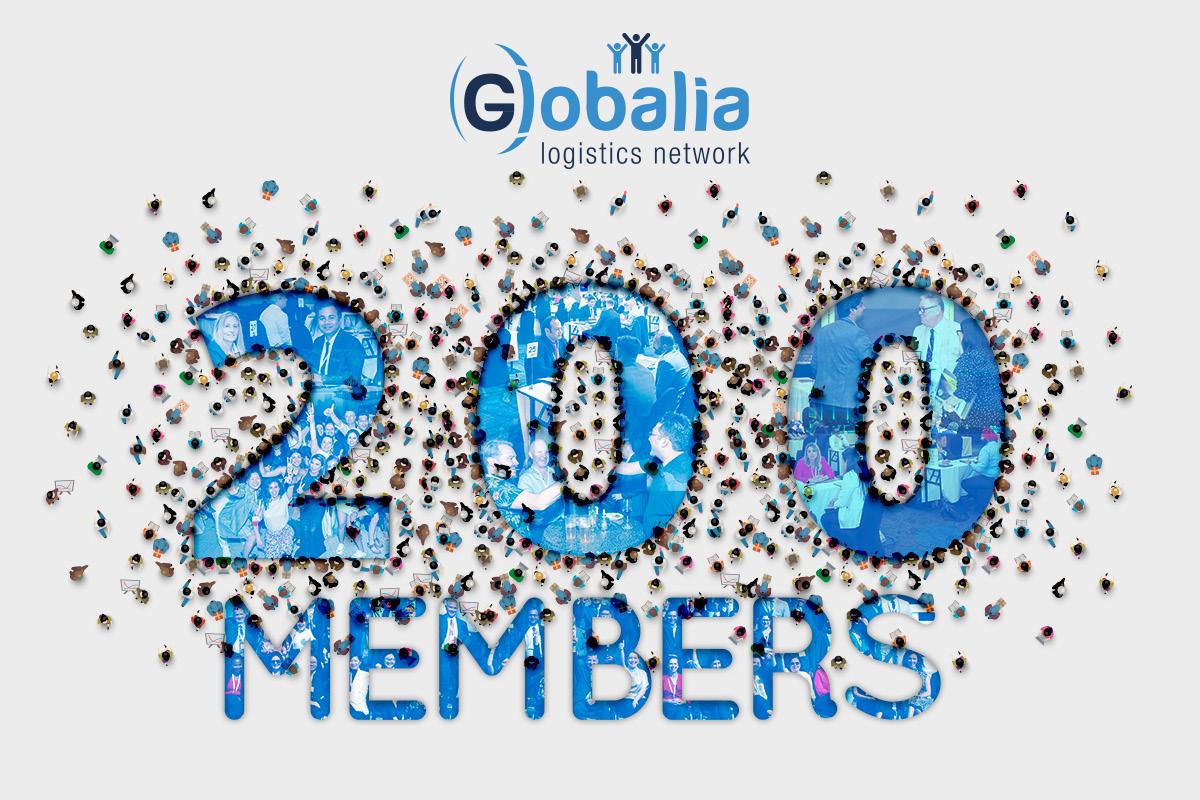
The proficiency and productiveness of Globalia have attracted freight forwarders from all the 5 continents who now have an international presence along with a large number of reliable partners in all the major cities of the world.
In the words of Antonio Torres, President and Founder of Globalia Logistics Network, Globalia was created 6 years back with the express objective of providing a solid global platform for independent freight forwarders which would allow them to gain new businesses while boosting their brands. There have been tough moments during the pandemic but we have been able to overcome the obstacles and even expand more. The whopping rise in the number of our members certainly reflects the efficacy of our network and our commitment to our member’s cause.
One of the factors that has contributed to this growth is the Annual Meetings organized by Globalia. In these yearly events, Globalia members get face to face and discuss the prospects of enhanced collaboration and finalize their deals. Moreover, their territorial exclusivity ensures that each major city/port gets represented by just one forwarder to avoid any kind of competition.
Overall, we owe this achievement to our members. This could not have been possible without the support and trust of Globalia members, who have believed in the network even in the most difficult moments. We are like a big family and Globalia is proud to be the link, continues Antonio Torres.
Other causes contributing to their growth are the wide array of online tools to make business easier for its members. In a bid to digitize the process of quote preparation, they have introduced the FreightViewer –an online freight rate management software which is available for free for all members of the network. It allows the members to create an accurate and professional quotation for their clients within less than a minute.
AI, data analytics and technology are transforming almost every aspect of the freight sector, including cargo insurance – enhancing customer experiences, reducing operational costs, helping to better assess risk, detecting fraud, and reducing human error, highlights
Matthew Phillips from specialist BreezeCargo insurance, much like air freight forwarding, is undergoing a digital revolution. Artificial Intelligence (AI), data analytics and technology are transforming almost every aspect of the industry – enhancing customer experiences, streamlining internal processes, reducing operational costs, helping to better assess risk, detecting fraud, and reducing human error.
For example, using AI and big data, an insurer can quickly and accurately assess the risk of an air cargo consignment, looking at route, commodity type, airline and other data points, and apply risk-based premiums that, in many instances, reduce existing flat-rates.
AI and data analytics can also be used to improve claims processing and customer experience by deploying machine learning algorithms to automatically process and triage claims, reducing the time it takes to resolve them. Additionally, predictive analytics can help to identify fraudulent claims, resulting in cost savings and reduced losses.
Thanks to the availability of data, more risks can be underwritten in profitable ways.
Matthew PhillipsLastly, by analysing data and behaviour, insurers can identify gaps in existing cargo product offerings and develop new insurance products and services that better meet customers’ needs. Thanks to the availability of data, more risks can be underwritten in profitable ways.
There is a lot of untapped potential to be found in leveraging these tools to improve existing, but outdated, insurance processes for air, sea and road cargo – processes which haven’t really changed in the last few hundred years.
However, the real challenge is not simply using AI, data, and technology, but rather leveraging these tools and methods whilst also making sure that forwarders and logistics companies actually get what they need in a simple and frictionless way.
In other words, how do you find the balance between complicated back-end processes such as AI, data, and code, and simple, slick, userfriendly processes for customers to engage with, which also solve their pain points? This is the hard part, and it is something that we have made our mission to find out.
We found that around 70% of global cargo is uninsured or underinsured.
Matthew Phillips
At Breeze, we have developed a platform that uses and leverages AI, data, and analytics for cargo insurance, taking these elements to a new level in the cargo insurance industry – for all modes of transport, including air cargo, sea cargo, and road transport.
The first thing we did to ensure that we always have our customers’ needs as our north star, was to work as operators at a freight forwarding company. We knew that the best way to learn about cargo was to put ourselves at the heart of the process, the place where almost all cargo goes through – freight forwarders.
We spent months working as forwarders, learning every little detail and corner of the business, from operations to finance. That’s the only way we could understand our customers (forwarders and logistics companies) and their needs.
This is how we discovered that a major gap exists for forwarders when protecting their shippers’ cargo. As freight forwarding agents, we found that cargo insurance is often missed, and is not being proactively offered to shippers when they book their shipments. Shippers often don’t even know that their cargo isn't insured, and many of them mistakenly think that insurance is already provided by default as part of the shipment. Deep-diving into this, we found that ~70% of global cargo is uninsured or underinsured.
We also realised the two main reasons forwarders aren’t properly offering insurance: (1) they have A LOT on their plate, and often don’t think about insurance; and (2) they don’t have the right tools and technology to seamlessly add this as a step in their everyday processes. Finding a solution for these problems became our main goal and obsession.
Finding a solution, we thought, will allow forwarders to offer insurance for every shipment at the time of booking and, in doing so, ensure that shippers are protected, while also increasing their sales and revenues.
Now, with this extremely important information, we were able to take our extensive AI, data, and technology skills and elegantly tie them to a product that is laser-focused on solving the problem. A slick design that sits on top of an enormous AI and data foundation, constantly improving the insurance offering for forwarders and logistics companies – allowing forwarders and logistic players to focus on powering the global supply chain.
Matthew Phillips is chief commercial officer at cargo insurance specialist Breeze (www.breezeai.com)But reshaping of shipping and trade flows won’t happen overnight, and countries wishing to attract more manufacturing must streamline trade bureaucracy, leading customs expert says
Shifting geopolitical and demographic landscapes, not least uncertainty about China’s role as a reliable long-term manufacturer as tensions with the US escalate, will reshape trade and shipping flows over the rest of this decade. This will create new opportunities for countries and companies in Asia, according to Neil Johnson, co-founder of customs firm TNETS, which processes some $200bn of trade each year.

In the latest episode of The Freight Buyers’ Club podcast, produced with the support of the Dimerco Express Group, Johnson said his company was receiving enquiries every day from clients “looking to diversify the geography of their supply locations.”
At the same time, container lines, airlines and logistics providers were already preparing for this sourcing transformation by investing heavily across Asia. The carriers are coming, he said. We are seeing more investment in freight services and more investment in airlines around the region. I think, the physical part [of this procurement shift] is probably the easier part to deal with.
The sourcing shift is accelerating as China’s reliability as a long-term trade partner is questioned due to its closeness to Russia, its sabrerattling over Taiwan and rising tensions with the US. Drewry Maritime Research reported earlier this month that container shipping is “in the crosshairs of a superpower tussle that could divide the world and reshape trading networks.”
China’s severe Covid lockdowns, ageing population, rising production costs and US tariffs on Chinese imports are also major push factors for manufacturers and retailers assessing their sourcing options.

However, pull factors are also playing a role in this decoupling from China, a trend that will change container shipping and air cargo trade flows, according to Johnson. For example, the burgeoning middle classes emerging in countries with younger demographics than China are creating new markets as well as providing ready flows of labour (see video at youtu.be/TMOgArxGOhE).
In Indonesia the middle class is going to be huge, and they are going to have tremendous spending power, added Johnson. Indonesia is definitely going to benefit from China plus one, or plus two, or plus 12, strategies. But Indonesia needs additional investment in logistics. That has been forthcoming, but it has been forthcoming very, very slowly. There are new ports being built, airports are getting some investment, but it's still not going to be sufficient to meet the needs of that growing middle class. Indonesia is the largest economy in Southeast Asia and it’s going to benefit from decoupling [of manufacturing from China but] it needs more infrastructure and that's right across the archipelago.
Johnson said Bangladesh and Vietnam in Asia, and Mexico in the Americas, would also be beneficiaries of the shift of manufacturing from China. But all require improvements in their trade and customs processes, and logistics, shipping and air freight infrastructure.
Having government departments that have got the know-how to smooth the way for businesses to flourish, to issue licenses, to get out of the way when infrastructure and when money is made available rather than being a sort of unnecessary gatekeeper – those are critical things and, it's still something which is quite slow in coming around the region. The decoupling from China is a very, very long-term project, compared to the speed with which carriers can, for example, switch on and switch off services. In order to, for example, replace a semiconductor plant that has been churning out product very, very smoothly and consistently in China – that's going to take three to five years to replace in even a well-developed economy such as Singapore or Malaysia. So, there are issues with decoupling, but there are other drivers which are going to drive this diversification.
Cost pressures are delaying fleet adoption of electric vehicles, research from mobility specialists Bridgestone and Webfleet has found.
The study, conducted among 210 fleet decision-makers, discovered that more than three-quarters (76%) are postponing their fleet electrification plans. A further 78 per cent said cost pressures were delaying plans for fleet technology adoption.
Cutting capital spend is the go-to survival strategy for many businesses as rising costs hit their bottom lines. But when it comes to fleet decarbonisation and digital transformation, it is a case of kicking the proverbial can down the road. What’s more, by deferring expenditure and adopting a short-term approach to cost-control in these areas longer-term profitability risks being compromised. With careful planning and management insights, the total cost of ownership (TCO) of electric vehicles – the cost of procuring, operating and maintaining them – can be lower than for their fossilfuelled equivalents, resulting in savings over the fleet lifecycle. Similarly, the cost of fleet tech investments can be rapidly offset by higher productivity, or by savings on everything from fuel and maintenance to insurance and administration.
Andrea Manenti, Vice President North Region, Bridgestone EMIA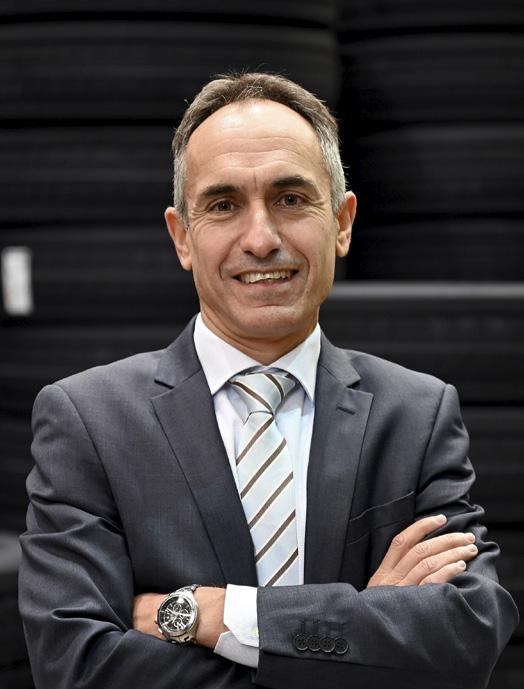
Fleets acknowledge the dangers of falling foul of short-termism, with more than three-quarters (78%) admitting that pressures to cut costs this year will negatively impact their longer-term cost-reduction strategies.
Cost cutting measures include fleet downsizing, cited by almost a third (32%) of those businesses surveyed, while almost two-thirds (61%) anticipate having to layoff fleet-related staff over the coming months.
A high proportion of fleets (72%) are also looking to extend their vehicle replacement cycles.
With the business squeeze continuing to stretch resources, digital systems that harness fleet insights to deliver efficiency and productivity gains can prove invaluable. For fleets that have yet to deploy the latest, advanced fleet management solutions, now may be the time to do so. The returnon-investment opportunities –alongside significant sustainability benefits – are far reaching, offering a precious route to greater business resilience when it is needed most.
Beverley Wise, Webfleet Regional Director, Bridgestone Mobility Solutions

Webfleet’s Cost of Business study is in line with the Bridgestone E8 commitment and its eight values – Energy, Ecology, Efficiency, Extension, Economy, Emotion, Ease and Empowerment – underpin the company’s sustainable mobility vision.

Generation Logistics, the awareness campaign created by Logistics UK and CILT and sponsored by businesses from across the logistics sector, is bringing its messaging about the industry’s career opportunities direct to its target audiences this week with the launch of a new major out-of-home advertising campaign. Generation Logistics is a careers and awareness campaign designed to keep the nation’s supply chains protected by addressing ongoing skills shortages and attracting more diverse talent into roles across the industry to future-proof the sector.
The new Generation Logistics campaign is appearing at poster sites including bus shelters, shopping centres and other high footfall areas in cities with high student populations, with the aim of challenging perceptions about the industry and encouraging interaction with the programme’s website, generationlogistics.org

Posters in cities including Edinburgh, Liverpool, London, Manchester and Cardiff feature eye catching visuals linked to roles in the logistics sector in the campaign’s distinctive orange and black livery, all with the strapline “Vacancies Available. Potential Unlimited”. A QR code on every poster directs the reader straight to the campaign’s website, where they can search for more information about the industry, as well as find out more about and apply for specific jobs listed on sponsors’ pages.
As an industry, logistics has long been in the background, an unseen facilitator of every facet of our daily lives. We have already changed perceptions of our sector, creating more than two million engagements to date with our social media channels and website from those inspired to find out more about the industry. Taking the campaign direct to our audience, and encouraging them to interact with it, will enable us to challenge their ideas about what logistics careers are all about. We are confident that the combination of eye-catching visuals and high traffic areas will provoke a reaction from potential employees and encourage them to investigate more about the sector. The workforce of tomorrow is within our sector’s reach, but we need to challenge their preconceptions about our industry at every turn. We believe the new Generation Logistics campaign will do just that and drive yet more interest and engagement in the sector, to help us future-proof roles in logistics.
Phil Roe, executive sponsor of the campaignDeveloped by Leeds-based creative agency ilk, the Generation Logistics campaign will feature three different creative executions, each designed to provoke a response from those passing by on foot or in a vehicle. The futuristic visuals and impactful typeface aim to challenge the way the public thinks about the sector and demonstrate the scale and scope of opportunity which the industry provides.
Logistics is still an overlooked employment opportunity for many. By putting the industry front and centre, alongside other big-name brands which advertise regularly in this way, we are challenging preconceptions about the sector and what it can offer potential employees. We need to make sure that logistics is a career choice spoken of in the same breath as law, medicine, retail and manufacturing, and we are confident that our advertising campaign will help us take strides forwards in this.
Delegates vote in new executive board and commemorate 50year landmark at record breaking AGM
Independent global freight management and logistics network
The WACO System has elected a new executive board at its annual general meeting (AGM) in Sorrento, Italy, where it also celebrated 50 years of operations.

The 50-year milestone was formally toasted at a gala dinner attended by 150 WACO delegates, making it the best attended event in the network’s history.
Fifty years is a significant achievement for the network with many of our members having been with us for the majority of the journey. In 1973 WACO started with just seven members and has since grown to 124 members in 118 countries, which gives it the ability to offer shippers a superb, robust, and comprehensive forwarding solution. Richard Charles, Chief Executive Officer (CEO), The WACO System
The newly elected executive board will serve a three-year term and includes: Reena Kapoor of ITN Logistics Group, member for Canada; Sean Bradley of dnata logistics, member for UAE; Vincent Touya of Dachser SE, member for Germany; Kristjan Palsson of Jonar Transport hf, member for Iceland; Stephen Knight of TransGlobal Freight Management Ltd, member for the United Kingdom (WACO Chairman); Arthur A. da Silva of Jet-Speed Air Cargo Forwarders (HK) Ltd, member for Hong Kong and China (WACO Vice Chairman).
Delegates at the AGM also heard presentations from keynote speakers Brandon Fried, Executive Director, Airforwarders Association, and Hind Chitty, Principal Consultant at Drewry Supply Chains Advisory Practice, analysing the air cargo and container shipping markets, respectively.
WACO’s general meetings provide networking opportunities for members who can furthermore take part in bilateral meetings in order to grow business.
The leading job board for the global freight industry








Reimagined. Redesigned. Relaunched.


Chapman Freeborn, the global air charter and leasing specialist, has appointed Nick Kelly as Senior Vice President – Aircraft, Crew, Maintenance, and Insurance (ACMI) Leasing, working as part of the newly-formed global ACMI department.

Kelly brings 18 years of valuable industry experience in ACMI leasing and cargo operations to Chapman Freeborn.
In his new role, Kelly will work with Chapman Freeborn’s ACMI teams globally with a focus on third party ACMI leasing and business growth in the European market and beyond.
I’m excited to join Chapman Freeborn and look forward to working together with the team we have put in place to grow our global presence in the ACMI market, adding to Chapman Freeborn’s already excellent reputation in providing cargo, group charter and private jet charter services, said Kelly.
Kelly will report to Scott Collier, President – ACMI at Chapman Freeborn.
Nick has extensive experience across all areas of the industry, from cargo and airline operations to the passenger sector, said Collier.
His experience and expertise will be a huge asset for our team and the company, and highlights Chapman Freeborn’s commitment to their provision of airline support in the long term.
Outside of work, Kelly enjoys travelling, spending time with his wife and daughter, and playing sports such as tennis and football. He also holds a pilot’s licence and has a passion for flying.
The Chapman Freeborn group was established in the UK in 1973.
The company has offices worldwide including North America, Europe, Africa, Asia, and Australia. In the cargo market, Chapman Freeborn Airchartering specialises in the charter and lease of aircraft for a wideranging customer base, including freight forwarders, multinational corporations, governments, humanitarian agencies, and a host of industries around the globe.

XPO (NYSE: XPO), a leading provider of lessthan-truckload (LTL) freight transportation, today announced that Dave Bates is joining the company as chief operating officer, North American LTL, effective April 21, 2023.

Dave is a high-impact executive with a strong track record of driving excellence in all aspects of LTL operations. We’re delighted that he’ll be leading our operations in creating ongoing value for our customers and investors.
Bates joins XPO from 27 years with Old Dominion Freight Line, Inc., where he was responsible for all dayto-day operations in North America for the last 12 years as senior vice president, operations. He started his career with roles at Carolina Freight Carriers and Roadway Express.

XPO (NYSE: XPO) is one of the largest providers of asset-based less-than-truckload (LTL) transportation in North America, with proprietary technology that moves goods efficiently through its network. Together with its business in Europe, XPO serves approximately 48,000 customers with 554 locations and 38,000 employees. The company is headquartered in Greenwich, Conn., USA. Visit xpo.com for more information, and connect with XPO on Facebook, Twitter, LinkedIn, Instagram and YouTube.
Mario Harik, Chief Executive Officer, XPOMOLINE, IL
Salary: $competitive
• Effectively support data gathering efforts required for projects
• Respond to and resolve issues pertaining to customs entry submissions
• Support the US Assist entry reporting process
COLLEGE PARK, GA
Salary: $competitive
Support Sales
• Prepare and present proposals, quotes and recommend services based on customer needs
• Obtain rates from our vendors for competitive quotes
• Create and maintain operational SOPs and conduct internal audit for assigned accounts, as needed
Act as the primary point of customer contact
• Primarily responsible for providing effective customer service for all internal and external customers by utilizing in-depth knowledge of operational (import or export) processes.
• Manage customer relationship in assigned accounts.
• Proactively provide shipment status and notify customers of any delays regarding arrival, delivery or dispatch of shipments.
Coordinate timely shipments at optimal cost and to customer satisfaction
• Proactively ensure current pricing information is available for all shipments before making necessary bookings.
• Co-ordinate with overseas offices, agents, customers and domestic vendors for timely shipments in assigned accounts
• Works with management to provide quotes for customers
WILMINGTON, IL
Salary: $competitive
• Coordinates and conducts classroom training for “powered industrial truck” training
• Maintains employee safety and hazmat documentation
• Coordinates and conducts safety and hazmat training as needed
• Develops and communicates safety and hazmat topics as needed
• Develops and implements training documentation changes, signage, and 5S projects
• Proactive decision making
• Drive results and react under pressure while fostering Employee Engagement
• Investigations, training the trainer sessions
INDIANA
Salary: $competitive
• Develops and updates daily performance shift goals to dock supervisors
• Analyses labour required to complete projected workload
• Follows up on operational shortfalls
• Coordinates and monitors arrival of priority containers with dock supervisors regarding priority containers such as airfreight and special projects
• Responsible for establishing daily drayage forecast, vessel assignments, and coordinating with drayage partners, port authorities, terminal operators and customers to ensure daily/weekly goals are achieved
• Maintains contact with carriers to collect data about daily performance
• Analyses and cross-references reports while coordinating with customer service and other staff to ensure movements of customer goods are properly performed

ATLANTA, GA
Salary: $90,000–$100,000 + commission
• Strong portfolio of customers with a GP ( not revenue) of around $1–2 million per year
• International freight forwarding (so, not domestic at all)
• Able to sell all Products and services (air, ocean, import/export, customs)
• Long tenure with the same company
HOUSTON, TX
Salary: $70,000–$80,000
Car allowance: $550/month Mon–Fri 8am–5pm
To collaborate closely with other Company offices on assigned accounts. The key account management includes, development of brand new accounts, participate in Requests for Quotation (RFQ), to expand share-up lanes from the assigned accounts. Oil, Gas, Energy vertical
• Research, analyze and identify business prospects through daily cold calling, web research, and networking for new business opportunities (on both local and out of state) whereby business travel will be necessary
• To establish and cultivate business relationship and set up face to face visitation with new potential customers and maintain relationships with current customers
FOR MORE INFORMATION & TO APPLY, PLEASE FIND THESE ROLES ON
KANSAS CITY, MO
• Execute orders by confirming arrival times, coordinating with customs brokerage, inputting data, and dispatching deliveries
• Build customer relationships by responding to customer communications via email, fax and mail
• Work with air and ground transportation partners to handle shipments
• Receive and track purchase orders from Importers/ Overseas offices for pending air shipments
• Retrieve shipment details, handle all documentation for cargo release and data entry for each shipment
• Answer all customer inquiries in accordance with the Customer Service Policy standards
• Further increase customer satisfaction and business share through proactive and regular contact
ROMULUS, MI
• Manages and drives performance of a team of Import and Export Specialists (Agents and Supervisors)
• Ensures customer and operations requirements are met and takes corrective actions in case of deviations from customer requirements
• Acts as subject matter expert for AFR Operations questions
• Interacts with Customer Service, Operations, Product, and Global Service Centres, if required
• Responsible for AFR overall P&L
CHICAGO, IL
Salary: $competitive
+ commission structure, bonus, car, benefits
We are a leading recruitment agency, looking for an experienced Ocean Export Coordinator to join our client's team in Chicago. Our client is a reputable freight forwarding and logistics company, seeking a detail-oriented and organized individual with excellent communication and customer service skills to oversee all aspects of ocean export operations.

• Coordinate and oversee all aspects of ocean export operations, including documentation, scheduling, and communication with customers, carriers, and freight forwarders
• Prepare and process shipping documents, including bills of lading, commercial invoices, and packing lists
• Ensure compliance with international trade regulations and requirements
• Communicate with customers to provide shipment status updates and resolve any issues that may arise

• Collaborate with internal teams, including sales and customer service, to ensure timely and efficient shipment processing
• Monitor and manage carrier performance, including scheduling and tracking shipments
• Maintain accurate shipment records and ensure timely billing and invoicing
• High school diploma or equivalent required; Bachelor's degree in a related field preferred
• At least 2 years of experience in ocean export coordination, preferably in a freight forwarding or logistics company
• Knowledge of international trade regulations and requirements
• Strong organizational and time management skills with the ability to prioritize tasks and work under tight deadlines
• Excellent communication and customer service skills
• Ability to work independently and as part of a team
• Proficient in Microsoft Office, including Excel and Word
• Experience with logistics software and systems preferred
If you are a highly motivated and detail-oriented individual with experience in ocean export coordination, we encourage you to apply for this exciting opportunity. Our client offers a competitive salary and benefits package, including health insurance, 401(k) plan, and paid time off. As a leading recruitment agency, we are committed to finding the best fit for both our clients and candidates. We look forward to hearing from you.
Craig Headford, Headford USA
+1 (470) 751 4644 | craig@headfordgroup.com

































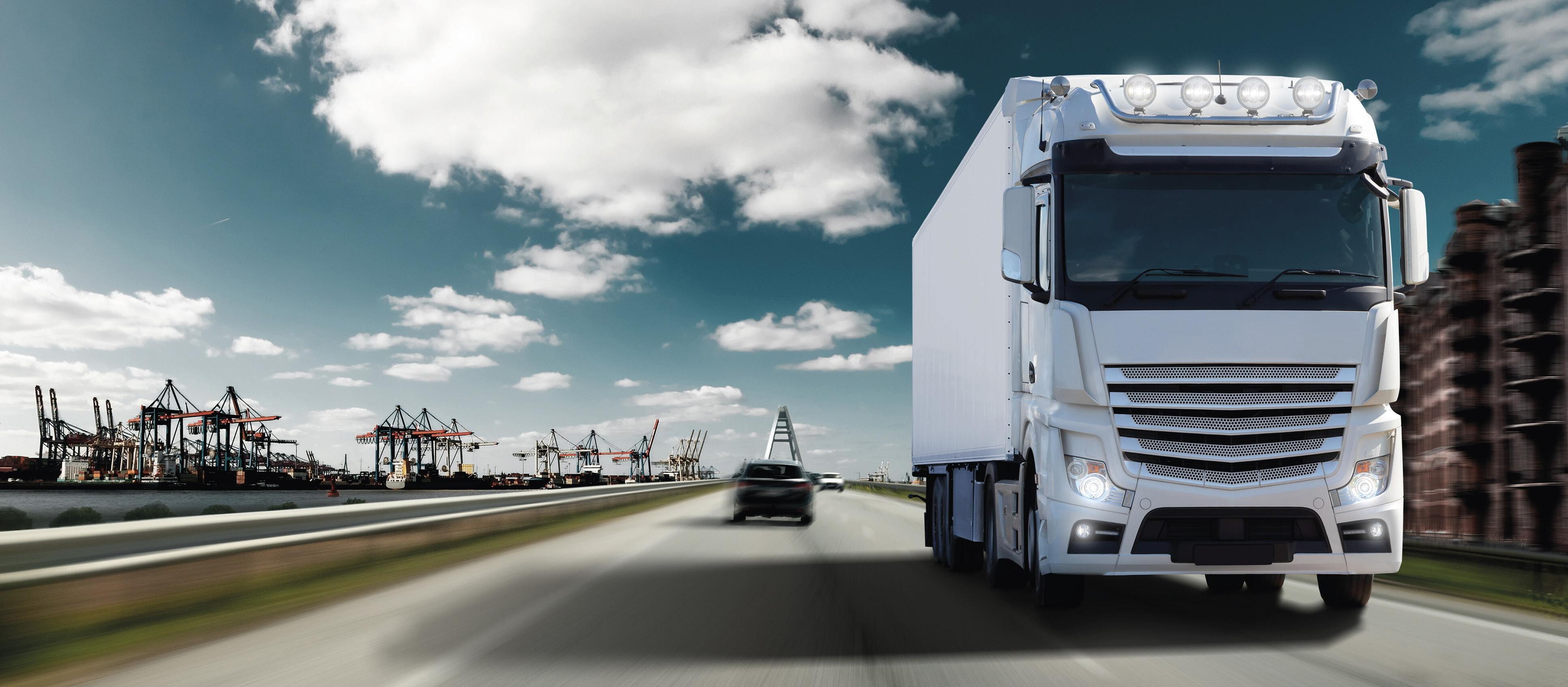













Forwarder expands its services into last-mile and e-commerce fulfillment, accelerating plans to offer logistics from ‘factory floor to customer door’, and becoming the official logistics partner for the Shopify e-commerce retail giant’s millions of merchants
US freight forwarding and logistics provider Flexport has agreed to buy the assets of Shopify Logistics, the logistics and fulfilment arm of the Shopify e-commerce retail platform and point-of-sale specialist, expanding its global services into last-mile and e-commerce fulfillment “to all customers” and becoming the ‘official logistics partner’ for Shopify’s millions of merchants.
Under the terms of the agreement, Shopify will receive stock representing a 13% equity interest in Flexport, on top of an existing equity interest in Flexport that it acquired last February as a strategic investor in the California-headquartered forwarder’s $935 million ‘Series E’ funding round, which took the total equity raised by Flexport to more than $2 billion and raised its valuation to $8 billion.
As part of last year’s investment, Shopify and Flexport “forged a strategic relationship and a shared vision to build a unified supply chain network for Shopify merchants from factory floor to customer door”. This led to the launch in February of the Flexport App on Shopify –“a one-stop, integrated solution designed to allow small and mediumsized businesses (SMBs) to meet their global trade needs”. The app initially enables merchants using Shopify to quote, book, track, and ship products to the US – including LCL and FCL services – and obtain customs clearance, insurance and financing. Described by Flexport as “the first milestone in Flexport’s strategic partnership with Shopify to empower SMBs with the technology and tools they need to grow their businesses globally”, Shopify’s millions of merchants were also offered “access to real-time cost estimates and the ability to leverage enterprise-grade reporting and analytics to remove common barriers to freight forwarding”.
But after Shopify over-extended parts of its business in anticipation of continuing growth rates similar to those during the pandemic, Shopify on 3 May announced significant workforce cuts and the sale of most of the assets of Shopify Logistics, including its Deliverr business, to Flexport – along with the sale of Shopify’s ‘6 River Systems’ collaborative AMR (autonomous mobile robot) fulfilment solutions business to Ocado.
A senior source at Flexport said this was part of Flexport’s strategic plan to provide a “shopfloor to final delivery” service, “and this opportunity came, and accelerates that plan.”
Flexport CEO Dave Clark, a former long-standing Amazon executive who was Amazon’s SVP for worldwide operations for eight years until 2021, commented:

This is an exciting time for Flexport. This acquisition is the last piece of the puzzle that enables us to drive technology-fueled solutions across the entire product life cycle from the manufacturer’s floor, across the oceans and skies, through ports and fulfillment, and, now, right into the hands of customers. Over the past six months, we’ve taken some important strategic steps, building off of the amazing momentum Flexport has had, to position the company to achieve our audacious goals. We’ve built a strong leadership bench with some of the best logisticians, technologists, and operators in the world. We are also heavily invested in hiring hundreds of software engineers who are joining our existing teams with a passion for rapidly building for customers. Across all our teams, we have the talent, focus, vision and the tenacity at Flexport to change the world.
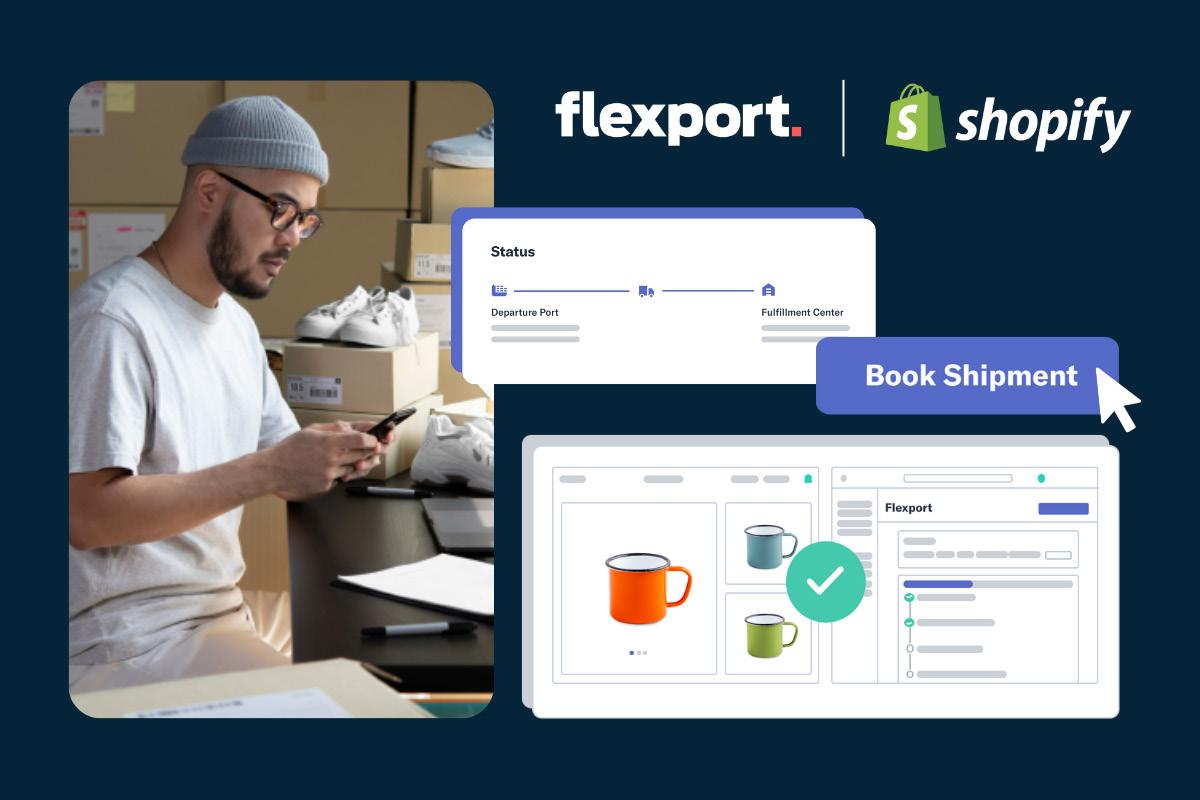
He described the Shopify Logistics acquisition as “one big step on an already incredible journey that Flexport is taking to modernize and change the future of the supply chain. Another central goal for us is to level the playing field for small businesses. In the U.S., in a world where the e-commerce market size is poised to surpass $8 trillion in 2026, one-in-four small businesses in America still do not have an online store. This is a massive number of companies on the sidelines. We want to welcome them into the e-commerce ecosystem and support their supply chain needs; you shouldn’t have to be the biggest company in the world to have easy, cost-effective and fast supply chain solutions.
For Flexport, this acquisition enables our vision for a full digital transformation of the global supply chain that we will bring to all customers. This democratization and pooling of scale will level the playing field for cost and speed of delivery for all businesses, not just the largest corporations in the world.
The former Amazon executive, who oversaw the building of Amazon’s transportation network for its sellers, has said he now aims to do the same for rival shipping customers via Flexport, where he became CEO on 1 March after spending six months as co-CEO.
He continued: The end-to-end supply chain industry has not undergone the technological breakthroughs and data platforming we have seen in other sectors. Flexport is changing that. After the past several years of public discourse focusing on what’s wrong with the supply chain, it’s exciting to look ahead to how Flexport can bring solutions and make the global supply chain better for everyone.
Through the integration of Shopify Logistics, Flexport will strengthen its advanced AI-driven optimization to streamline the full global supply chain, reducing costs and improving reliability for customers”, the forwarder said. “Traditional supply chain technology has failed to create a single system for end-to-end supply chain planning, visibility and execution. Flexport intends to change all that, reducing out-of-stocks for customers, costs for companies, and decreasing the environmental impact of the movement of goods.
Clark added: Following in the spirit of our partners at Shopify, Flexport has built technology solutions on top of a global, diverse network of logistics partners to make the world simpler for merchants and enterprises selling across all their channels around the world. With this acquisition, we will deepen and expand these partnerships, providing all merchants and businesses more opportunities to grow and succeed because their success is our success.
The companies expect the deal to close in the second quarter subject to customary closing conditions, including the receipt of regulatory approvals.
Tobi Lütke, founder and CEO of Shopify, said the sale of Shopify Logistics to Flexport will enable Flexport and Shopify to carry the merchantcentered logistics vision forward, and give more businesses access to a fast, flexible and affordable logistics network that seamlessly integrates with the Shopify tools they know and love.
Lütke told Shopify staff, On May 3, 2023, Shopify entered into a definitive agreement to sell the majority of our logistics business, including the people, technology, and services related to these operations, to Flexport, a leading tech-driven global logistics platform. Shopify has been building a world-class logistics solution that is port to porch – giving merchants speed, flexibility and affordability, all with a simple, seamless integration into the Shopify tools they already know and rely on every day. This transaction will take the logistics solution Shopify has been building and place it in the hands of a trusted and mission-aligned partner Flexport.
He said the transition of Shopify logistics assets to Flexport will be led by Harish Abbott, co-founder and CEO of Deliverr, under the guidance of Flexport CEO Dave Clark. In connection with the closing of the sale, Shopify is entitled to name a director to Flexport’s board.
Flexport will also become the official ‘Shopify Logistics Partner’ and provider of ‘Shop Promise’ for millions of Shopify merchants. Shop Promise enables transparent shipping timelines, including two-day and next-day delivery options to customers of Shopify merchants, and will be extensible to all major commerce platforms, Flexport said, adding: These services will be powered by Flexport and available on the merchant-facing Shopify Fulfillment Network app, which offers merchants an integrated logistics experience through Shopify.
Flexport said its technology “now makes it easy for businesses to plan, visualize and execute the movement of goods from manufacturer to the customer's store or door, unified under one technology platform.”
Further explaining the sale, Lütke said, building logistics infrastructure is a side quest every e-commerce entrepreneur is eventually pulled into because of the way the logistics industry works: a series of disparate players, all focused on different aspects. To run your store you work with extremely carefully designed software. To run logistics, you will use pen, paper, and phone calls a lot. And most of the time your service providers don’t talk to each other. Coordinating them to act together is your burden. Instead of every merchant individually taking on their own side quest, Shopify decided to accept it on their behalf. We set to work building software addressable logistics that didn’t exist before. Logistics was clearly a worthwhile side quest for us, and started to create the conditions for our main quest to succeed.
From the beginning, we worked with lots of partners on all aspects of this same problem: warehouses, robotics, transportation, crossdock, freight. We iteratively built a solution, step by step, through software, leases, and M&A deals, that could be an independent company one day. Shopify was the perfect place to bootstrap this effort from 0 to 1 and we have done this. The next step is to take what we have and take it from 1 to N as a main quest. Flexport, led by CEO Dave Clark and Founder Ryan Petersen, is the best builder and operator in the world of logistics. Contributing our work to Flexport, under the leadership of Harish Abbott, allows everything about Shopify Logistics to be more ambitious and global in nature. Making the global supply chains efficient and software addressable is Flexport’s main quest and so this is the perfect home for this part of Shopify.
9 MAY 2023 | Source: ARCHLYNK
ArchLynk, a global leader in Digital Supply Chain Consulting Services and Global Trade Solutions headquartered in San Jose, California, announced today the acquisition of WCS Consulting, a leading consulting advisory firm for Planning and Operational optimization solutions for digital supply chains.
This acquisition is part of ArchLynk's vision to become the leading digital supply chain systems integrator globally. This is ArchLynk's first acquisition following the merger of Krypt and Novigo, SAP digital supply chain partners backed by BV Investment Partners. This strategic acquisition strengthens ArchLynk’s standing as a top-tier provider of end to end innovative supply chain solutions.
One of the key factors that made this acquisition an attractive opportunity for ArchLynk was WCS’s reputation and deep expertise in the Integrated Business Planning and operations consulting space.
WCS's clear leadership in IBP adds a critical foundational element to the ArchLynk platform and accelerates our goal of creating the only independent, pure-play provider of the full suite of SAP Digital Supply Chain services. We are excited to partner with Simon Tunmore and his team in bringing our combined capabilities to all of our clients and the broader market.
Eric A. Ahlgren, Managing Director, BV Investment Partners, LPSimon Tunmore, CEO of WCS, will become SVP, leading the new business unit of Business Consulting & Planning, bringing along his existing team and integrating additional members from ArchLynk.
Joining forces with ArchLynk was an easy decision and combining our supply chain and factory planning expertise enabled by SAP's solutions will allow us to offer unparalleled value to our clients.
Simon Tunmore, CEO, WCS ConsultingWe are thrilled to welcome WCS Consulting into the ArchLynk family. The opportunities presented by this acquisition, bolstered by the merged organization's strategic vision, end-to-end DSC capabilities, and culture of innovation strengthen our capabilities and position us as a comprehensive digital supply chain solutions provider.
Sekhar Puli, CEO of ArchLynkIn a domain primarily serviced by general Systems Integrators, ArchLynk stands out by offering specialized, targeted domain knowledge backed with an extensive toolkit of Intellectual Property catering exclusively to the supply chain sector.
WCS Consulting is a leading advisory and delivery firm specializing in digital supply chain solutions. Headquartered in Boise, Idaho, WCS Consulting, a premier SAP partner, holds a successful track record of developing and implementing global solutions, primarily focusing on supply chain process improvement, performance management, and deploying SAP supply chain applications. Established in 2014, WCS Consulting has extensive experience in the SAP Integrated Business Planning deployments and developing applications that enhance ERP and supply chain functionalities.
This acquisition will elevate ArchLynk’s position as a leader in the Digital Supply Chain Consulting ecosystem. Customers will leverage a comprehensive range of services that not only address their specific supply chain challenges but also drive digital transformation and continuous improvement. The customer bases of both entities are distinct from one another, presenting a unique opportunity for ArchLynk to offer our wide range of offerings across our combined customer universe.
As part of ArchLynk’s vision and strategy, the leadership will also continue to look for strategic and opportunistic acquisitions in the space globally.
For more information about ArchLynk and the acquisition of WCS Consulting, visit ArchLynk's website at www.archlynk.com
ArchLynk is a global leader in SAP Digital Supply Chain and Global Trade Solutions. ArchLynk, as a combined entity, brings the unparalleled expertise of both Krypt and Novigo in the global trade and supply chain consulting domain to customers. Headquartered in San Jose, California, the company provides consulting services for SAP Digital Supply Chain (TM, IBP, EWM, YL, EM, BN4L) platforms and SAP Global Trade Services. Since the inception of its legacy companies in 2008, ArchLynk has successfully delivered the most SAP Supply Chain Execution and Global Trade projects for businesses. With offices across North America, EMEA, and APAC, ArchLynk aims to provide customers with world-leading services through cutting-edge SAP services and innovations.


This US-based company is seeking an active and experienced buyer who is in the market for a well-known traditional customs broker and freight forwarder. They are involved in various aspects of international transportation, specialising in the handling of sensitive and ‘special needs’ cargo including time-sensitive shipments, perishables, heavily regulated commodities, government cargo, hazmat, oversized/overweight and high-value merchandise.
• Est. 1982
• 2 shareholders
• A range of operating licenses:
- IATA, CNS
- TSA/DOT/FAA
- Licensed customs broker
- Duty drawback specialists
- ISO 9002 – 1994
- C-TPAT
- SAM
• NVOCC (Including DoD)
• Warehousing: 3,000 sqft
• International transport
Air : import 57% | export 9%
Sea : import 29% | export 5%
January to May 2021
Revenue: $10.8 m
Gross profit: $1.9m
Net profit: $ 875k
Forecast full year 2021
Revenue: $ 30 m
Gross profit: $ 4 m
Profit before tax: $2 m
2020
Revenue: $19.1m
Gross profit: $ 3.4 m
Net profit: $ 634 k
2019
Revenue: $12.5m
Gross profit: $2.6 m
Net profit: $130 k
LOCATION USA
CONTACT
Alex Reading, M&A Consultant alex.reading@freightmergers.com
+1 (646) 933 1264
Freight Mergers have been appointed by a large UK logistics provider who are part of a wider global group. Freight Mergers are looking to source relevant acquisition targets that match their criteria. This buyer is looking to facilitate a timely and smooth transaction within 2023; they are open to introductory meetings over the coming weeks and months. They feel they will be a suitable custodian for any business where the director(s)/shareholder(s) are aiming to retire or move on to their next chapter.
• £25m+ Revenue
• £5m+ GP per annum
• Air freight focused
• He ad office: UK based
• Strong Senior Management Team
• Asset light (unless a warehouse is owned in the North West)
• Flexible regarding the deal structure of the owner
• Far East
• Indian Subcontinent
• US/Canada
• Middle East
• Turkey
2021
Turnover: £232m
Gross Profit: £41.9m
Profit Before Tax: £28.2m
Cash in Bank: £28m
UK wide
REFERENCE
Project North
CONTACT
Alex Reading, M&A Consultant
alex read ing @freightmergers.com +44 (0)1454 275 933
Today, privately owned maritime services and logistics conglomerate Harren & Partner have announced that they have changed their name to Harren Group
The launch of this group brand marks the start of a new era of collaboration and innovation within the organisation to further enhance customer satisfaction. While the group’s individual company brands remain, this step unites these brands and its people across land and sea through a shared vision, mission and set of values to build the next generation of maritime services and logistics.
There is one global ocean, and we are one global group – bringing together the best thinkers and doers to move the world forward. This is an exciting step for all Harren Group members: Harren Bulkers, Harren Tankers, Harren Ship Management, SAL Heavy Lift, SAL Engineering, Intermarine, Combi Lift, Atheleon, trans-Marsupply, HeavyLift@Sea and all affiliated service units. As a part of this world-renowned group, they are dedicated to becoming the bridge to the future – and the industry benchmark for what’s possible.
Dr Martin Harren, CEO, Harren Group
The biggest change to the group is undeniably the evolved group brand identity. A new logo represents the ultimate bridge between all units, inspired by engineering excellence and maritime architecture. This instantly recognisable group image welcomes the world to the future of shipping and freight forwarding: a future that can only be created by today’s and tomorrow’s top talents. This new group brand is designed to attract great candidates, strengthen commercial synergies and leverage the group’s unique maritime service range and depth.
It is crucial for everyone to know that our commercial brands are still operating as individual group members. The key difference: We will now be united under one strong group brand. Lifting customer expectations, collaborating to achieve what others have not and building a greener tomorrow, highlights Dr Martin Harren.
The transition to Harren Group kicks off with the rollout of the new brand identity across all communication channels, including the company’s website, social media platforms and marketing materials. The Harren Group rebrand comes at a time when the industry is experiencing significant transformation and demand for carbon-neutral end-to-end solutions is continuously growing. Some call it the ocean, but Harren Group calls it the office. Here’s to what’s next
11 MAY 2023 | Source: HARREN GROUP



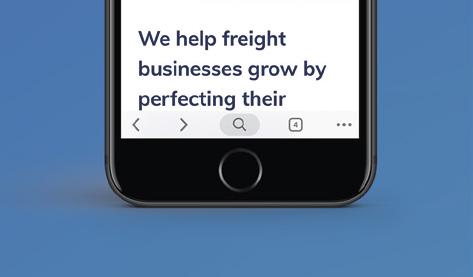

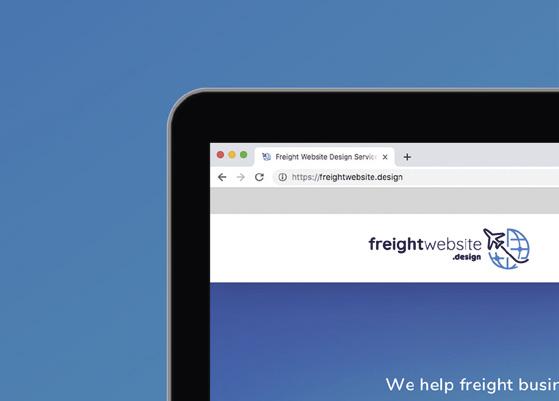
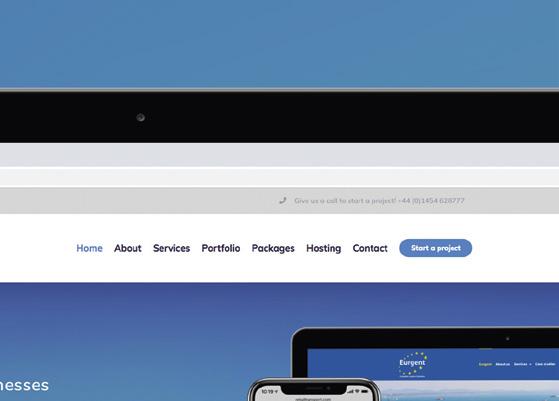


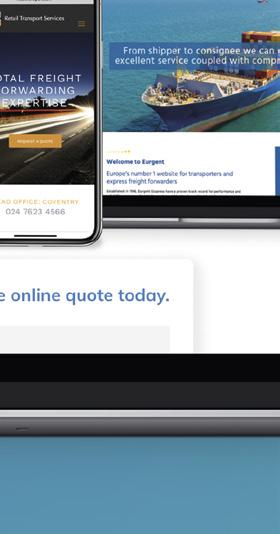








We


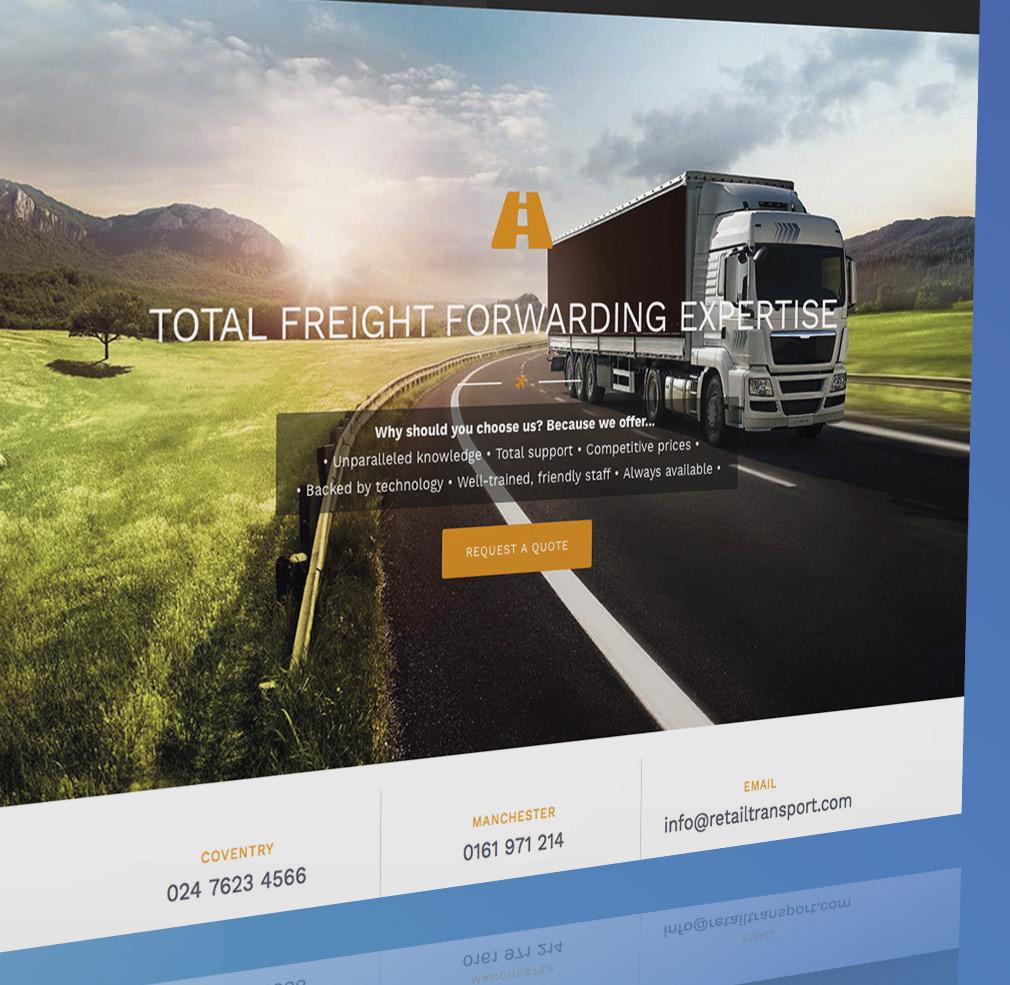
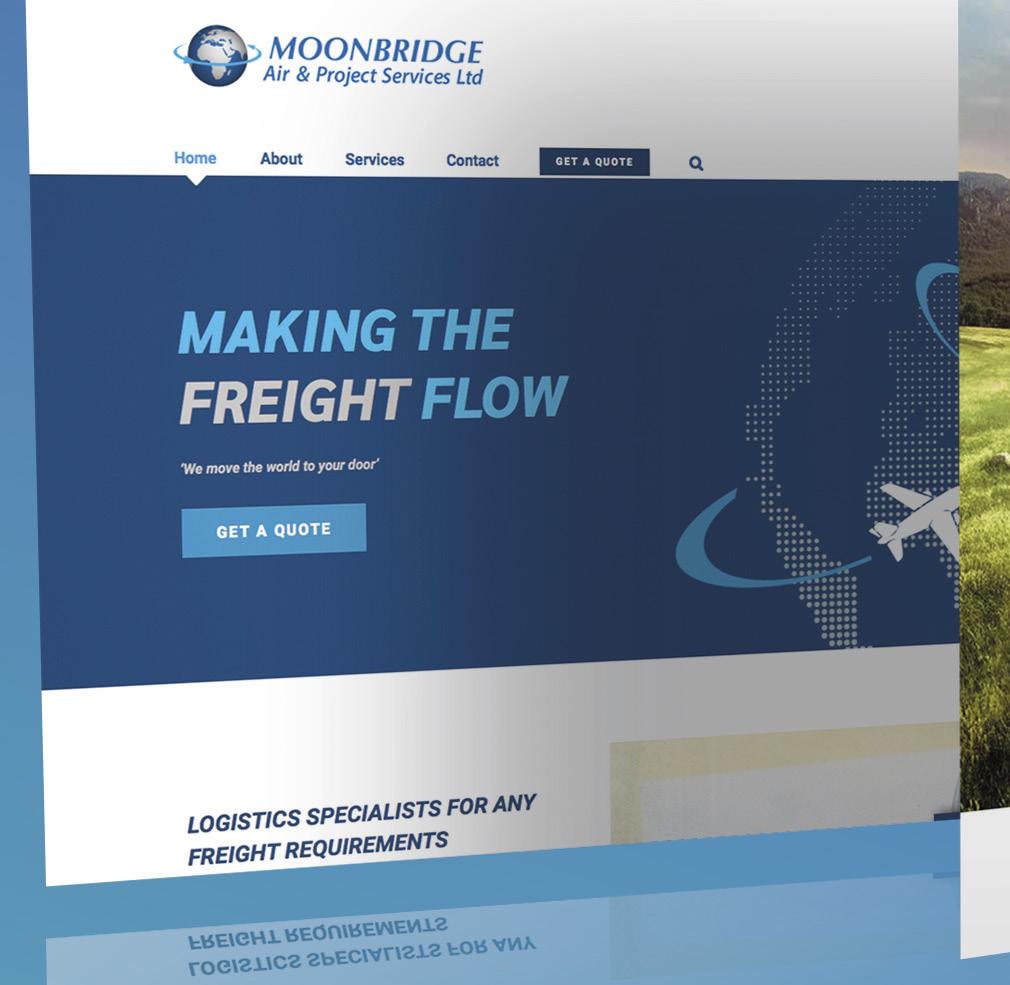


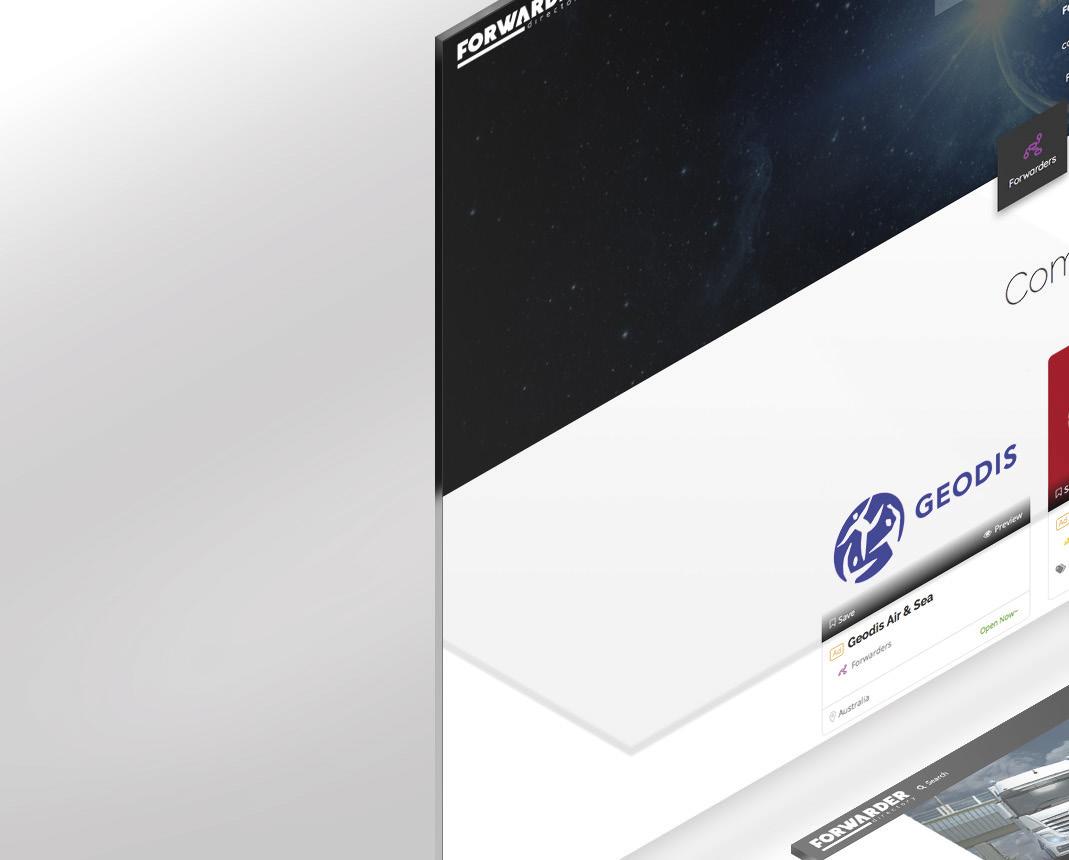
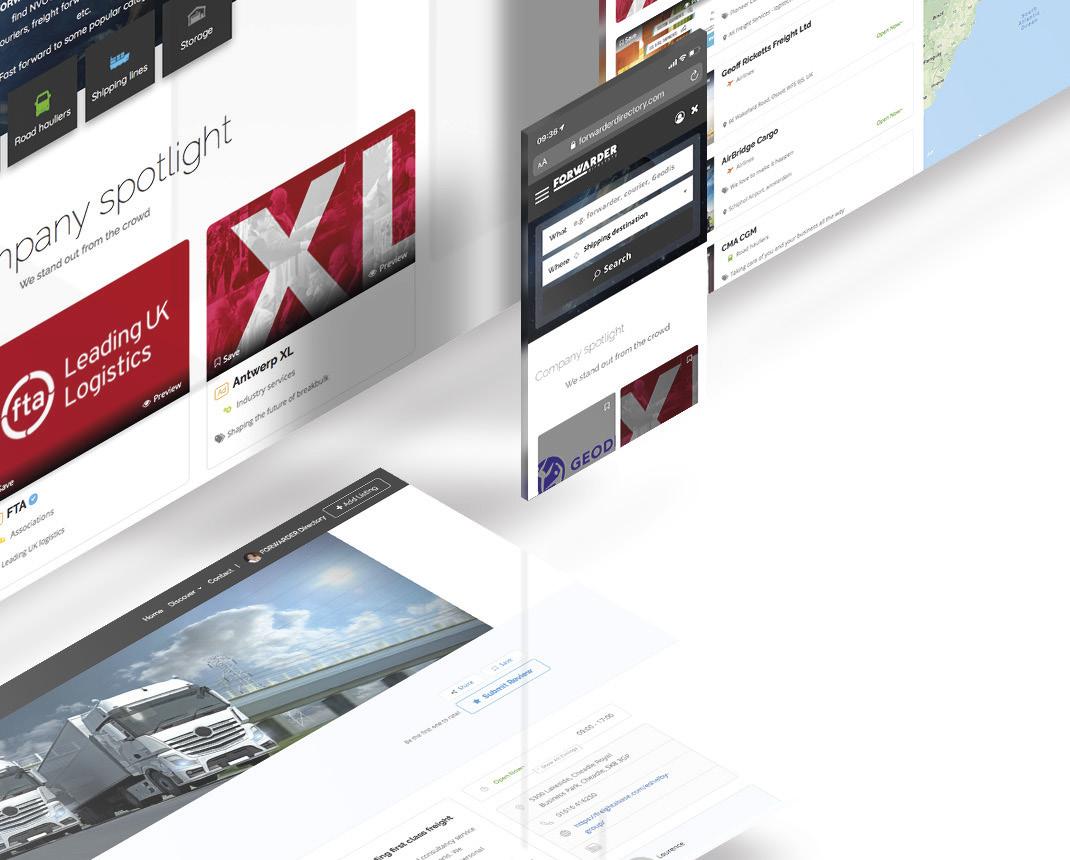





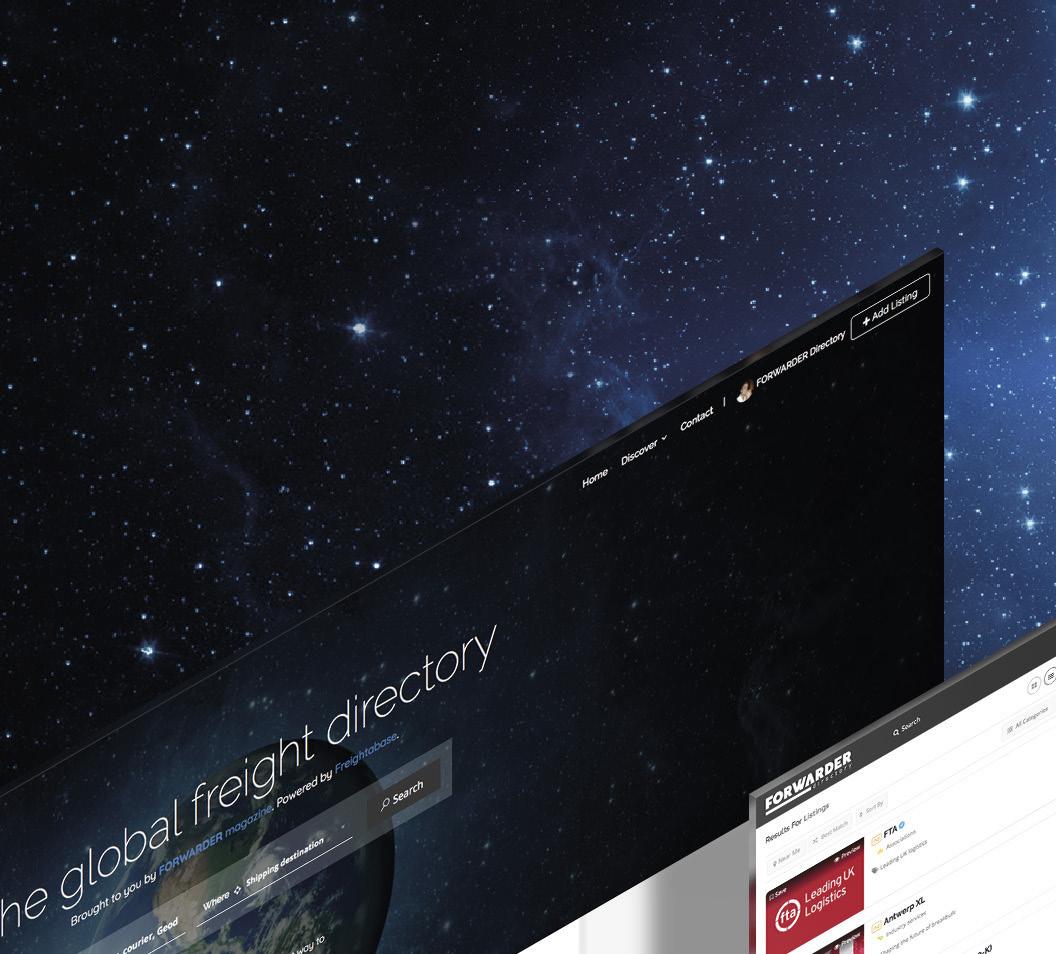








Commercial Catalyst Manufacturing at Scale is a Critical Milestone in the Journey to Produce Ultra-low Carbon eFuels
Electrofuels provider Infinium has manufactured a ton of its proprietary, patented CO2 conversion catalyst at its facility in West Sacramento, California. The Infinium catalyst is a critical component in the creation of electrofuels (eFuels), a new class of synthetic fuels that replaces carbon-intensive petroleum-based products.
Infinium eFuels are made from renewable power derived green hydrogen and captured carbon dioxide in a proprietary process. The novel catalyst facilitates the chemical reaction in that process that ultimately results in liquid eFuels.
Infinium previously announced that in 2023, it will begin delivering eFuels from its plant in Corpus Christi, Texas, to Amazon to help decarbonize its middle mile trucking fleet.
As both a technology innovator and a project developer, Infinium has autonomous control of the eFuels production process from start to finish. Having control of both core technology and project development is unique in the rapidly developing eFuels industry.
From the beginning, we have been developing projects based on our own proprietary technology which increases our efficiency and reduces our costs. Catalyst production at scale in our own facility is an important milestone in our journey to delivering commercial volumes of eFuels in 2023 and beyond.
Robert Schuetzle, CEO, InfiniumInfinium eSAF and Infinium eDiesel can be used in today’s planes, ships, and trucks as an immediate replacement for petroleum jet and diesel fuels without modifications to engines or distribution infrastructure. Infinium eNaphtha can be used to produce gasoline fuel alternatives as well as replace petroleum-derived naphtha in chemical and industrial processes for the creation of goods like plastics and solvents.
IAG Cargo offers additional capacity between Europe, Latin America and the Caribbean for the summer season – and restarts services between Barcelona and Chile
IAG Cargo’s network today includes 33 destinations in Latin America and the Caribbean up from 25 in 2019
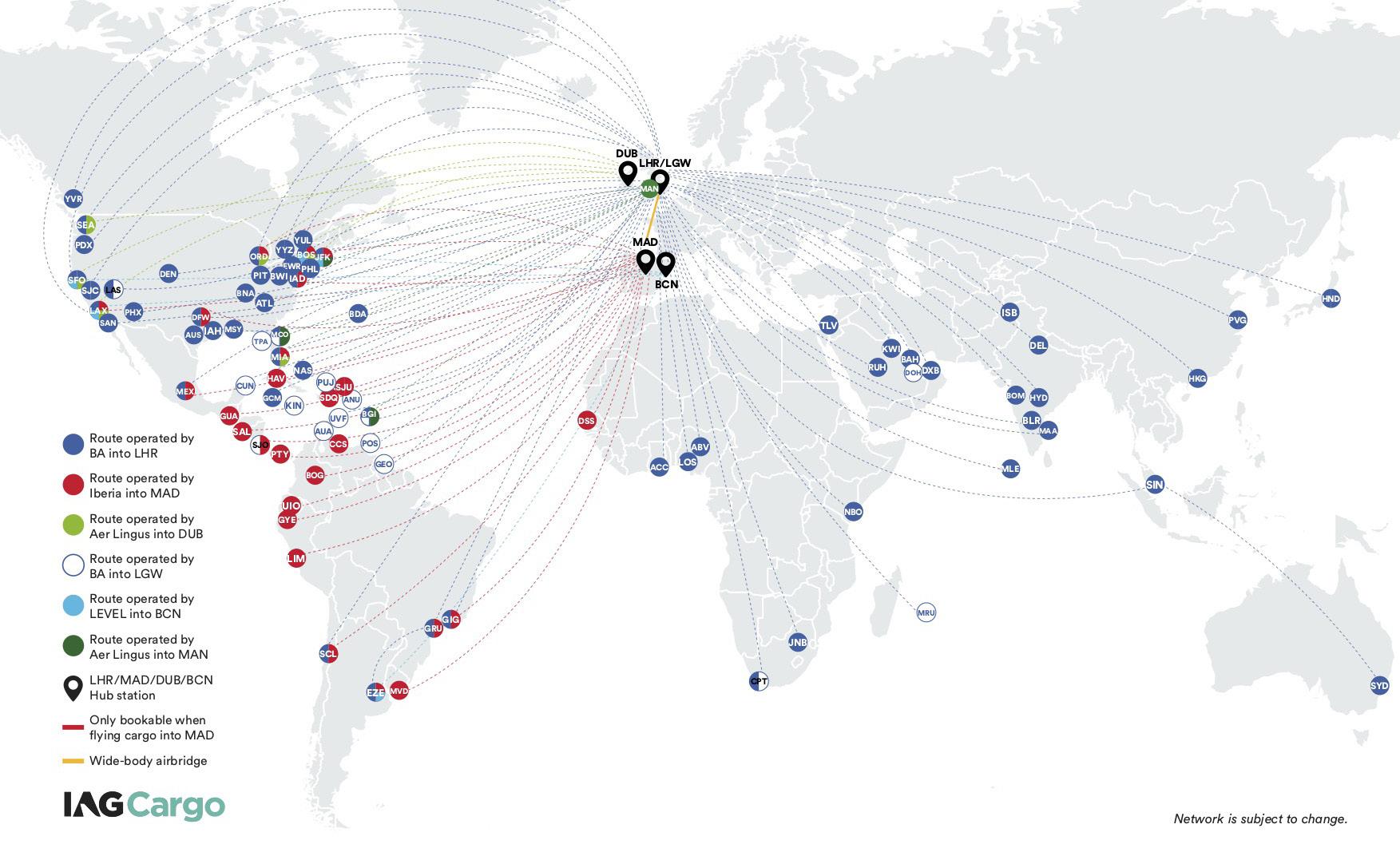
The business now offers 400 wide-body services between Europe, Latin America and the Caribbean (401)
IAG Cargo, the cargo division of International Airlines Group (IAG) announces additional capacity for the summer season between Latin America, the Caribbean and its hubs - London, Madrid, and Barcelona.
Overall, IAG Cargo now offers 400 wide-body weekly services between Europe, Latin America and the Caribbean. Following a revival last year, IAG Cargo now services 33 per cent more destinations in Latin America and the Caribbean than pre-pandemic.
IAG Cargo customers will benefit from more capacity to the region with flights between Madrid and Bogota increasing from 14 to 18 weekly services and in Lima four more connections will be added, offering 11 weekly flights. Panama will have between five and seven weekly connections throughout the summer, and daily services from November onwards. The business now also offers a daily service between London and Mexico, with flights between Barcelona and Chile restarting.
In the Caribbean, services between Madrid and Havana increase to five per week and Puerto Rico to six per week in August. Flights between London and Bermuda have increased to a daily service.
It’s great to see our network continuing to grow in Latin America and the Caribbean, these are vital trade routes crucial for maintaining a healthy global economy and supporting people’s livelihoods. The increased frequencies offer our customers more options to connect their cargo to the rest of the world via our network which today covers six continents, and we recently introduced China back to our regular schedule – an important market for many exporters in Latin America.
Rodrigo Casal, Regional Commercial Manager for Latin America & the Caribbean, IAG CargoThese routes regularly facilitate the movement of perishables and popular foods grown locally including flowers, papayas, mangos, and stone fruits as well as pharmaceuticals and automotive parts.

During the second edition of the Sustainable Flight Challenge, organised by SkyTeam, KLM operated a Boeing 787-10 Dreamliner flight from Amsterdam to Los Angeles on 17 May, while Air France will embark on a journey from Paris to Atlanta on 23 May operating an Airbus A350-900. These flights symbolise our strong commitment to achieving the highest possible level of sustainability in today’s industry.
At Air France KLM Martinair Cargo, we’re constantly exploring new ways to make our operations more sustainable and reduce our environmental impact. We acknowledge that achieving meaningful change in the airfreight industry requires collective efforts. We take pride in the progress we have made together with our partners towards achieving greater sustainability.
For the second edition of the Sustainable Flight Challenge, we’re supporting both Air France and KLM by implementing the following initiatives:
Inspired by the Patagonia initiative: 1% for the Planet. We will be allocating 1% of Cargo turnover from all LAX flights during the week of the Sustainable Flight Challenge to the Gold Standard Foundation.
Weight & balance are crucial for safe flight operations and the position of the centre of gravity has a direct impact on fuel consumption. Implementing effective cargo load planning can result in significant fuel savings. The benefits here are twofold: reduced weight by having to carry less fuel and reduced emissions!
Joining forces with several partner trucking companies, we reviewed our emissions and invested in Hydro-treated Vegetable Oil (HVO) fuel for our European trucking network in the two days leading up to the challenge, 15 and 16 May in a bid to reduce our carbon footprint.
Paperless handling (E-AWB), electric transport in the warehouse and electric tractors to transport cargo to the aircraft.
During our cargo operations we will use lightweight nets, cardboard board cases, cardboard beams, lightweight unit load devices (ULD), and re-usable covers for cargo pallets.
We will be conducting a pilot with cardboard pallets instead of wooden ones for freight transport. This will generate weight savings of 5 to 8 kilograms per pallet. The pallets are made from recycled paper (94%) and are easy to recycle.
It’s fantastic and truly inspiring to witness how our passionate colleagues and partners have gone the extra mile in a short period of time to raise awareness and drive sustainability initiatives forward. The airfreight industry is a complex ecosystem involving many stakeholders. By uniting, we can catalyse, accelerate and transform the industry. Through the Sustainable Flight Challenge, we channel all of this positive energy towards a single shared goal: creating a more sustainable airfreight industry.
Adriaan den Heijer, EVP Air France-KLM Cargo and Managing Director MartinairThe challenge extends beyond its participants; it calls for cooperative efforts, responsibility, innovative thinking, and forging partnerships to shape the future of our industry.
By sharing and implementing existing innovations on a broad scale, we can make a significant impact and push the boundaries to explore new horizons. Through establishing a level playing field among industry partners, we have the opportunity to raise the bar year after year. Only together can we achieve a more sustainable airfreight industry.
9 MAY2
023 | Source: IAG CARGOSustainability is a more topical issue than ever and people are increasingly adopting habits and lifestyles aimed at limiting their impact on the environment. The tourism industry also fits into this context: in fact, an increasingly growing number of travellers choose to spend their holidays according to principles of sustainability and respect for the territories.
This trend is reflected in the numbers: according to the latest data of the Swg observatory released in March of this year, four Italians out of five would be willing to experience sustainable tourism, thus preferring to stay in a certified environmentally-friendly structure at the same cost. As far as the environmental protection initiatives are concerned, almost 70% of the sample respondents are in favour of limited access and traffic restrictions and 73% would be ready to do without their cars and to use public transport or ecological vehicles.
Read more at www.trueitalianexperience.it/en
Our television screens and newspaper front pages are full of pictures and words from the intense and bloody conflict in Ukraine. We can all see that this conflict is threatening the lives and livelihoods of millions of civilians across the country. Thousands are fleeing. People have been injured. Many lives have been lost.
Readers of FORWARDER magazine may feel helpless in responding to this crisis. That is why staff at FORWARDER magazine have created a positive channel for financial support from our readership to get money right to those who need it most in this crisis. We are completely behind the by Disasters Emergency Committee (DEC) Ukraine Humanitarian Appeal because the civilian population in Ukraine needs our help like never before.
DEC charities and their local partners are in Ukraine and across the border in the neighbouring countries are working to meet the immediate needs of all people fleeing with food, water, medical assistance, protection and trauma care. Every pound donated by the UK public, including big-hearted FORWARDER will be matched by the UK Government up to £20 million. Readers of FORWARDER magazine who donate to DEC through our donation page, can be reassured that a sum of £30 could provide essential hygiene supplies for three people for one month, £50 could provide blankets for four families to keep them warm while £100 could provide emergency food for two families for one month.
Readers of FORWARDER magazine work in a globally-connected industry. The hurt that is being felt in Ukraine is being felt around the world by those whose business it is to move goods across the globe.
VISIT OUR JUSTGIVING PAGE TO MAKE A DONATION:
JUSTGIVING.COM/FUNDRAISING/













CRAIG EDITOR-IN-CHIEF
WILL CONTRIBUTING EDITOR
PAUL MEDIA / EVENTS MANAGER




TONY SALES EXECUTIVE


OMAR SALES EXECUTIVE


TIM DESIGNER
MOHIT DIGITAL & SOCIAL
A FINAL WORD FROM FORWARDER
Thank you for reading the latest issue of FORWARDER USA. You can expect to see more of us as the year goes on. We're running the US magazine alongside the global issue.
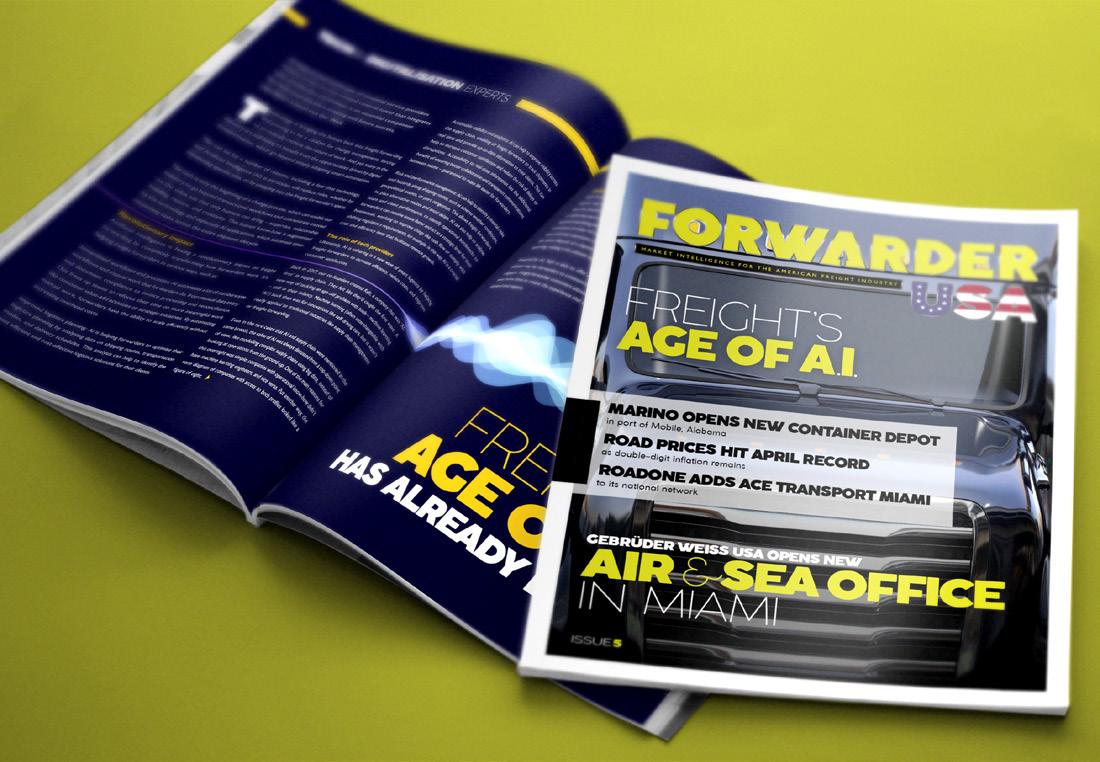
We'd love for you to be involved, so please get in touch and send us your news and expert opinions on the industry. We can be contacted at editor@forwardermagazine.us .
Please keep the great content flowing our way, and we’ll present it to the freight and logistics world, with love from FORWARDER
Tim, Designer, FORWARDER

We're hosting our fourth industry event on 5 October. It's being held in the Windsor Heathrow area of London. Let us know if you would like to attend. Check it out using the QR code or at FORWARDER .events

We hope you like the new format and hopefully there will be a section that is of interest to you every month. Feel free to get involved! To re-iterate, the main sections are...
AIR FREIGHT
SEA FREIGHT
ROAD FREIGHT
RAIL FREIGHT
PROJECT CARGO
AIR & SEA PORTS
TECH & DIGITISATION
EXHIBITIONS & EVENTS
CUSTOMS CLEARANCE
INDUSTRY SERVICES
CRISIS RESPONSE
RECRUITMENT & TRAINING
MERGERS & ACQUISITIONS
MEDIA & MARKETING
GIVING BACK
If you would like your editorial to feature in next month’s magazine, please contact our editor using the contact details to the right. If you would like to advertise in FORWARDER magazine , full details of our rates and technical specifications can be found in our media pack. Please email us for a copy.
Unit 8 Apex Court, Almondsbury Business Park, Bristol BS32 4JT United Kingdom
FORWARDER magazine is free to read. You can subscribe on our website.
Please visit us online at FORWARDERmagazine.us
magazine.us
FORWARDERmagazine.us +1 (312) 496 6624 twitter.com/ ForwarderMag
ForwarderMag
facebook.com/forwardermagazine linkedin.com/company/forwarder-magazine
EDITOR-IN-CHIEF Craig craig@headfordgroup.com
CONTRIBUTING EDITOR Will editor@forwardermagazine.us
ADVERTISING
Antoniu tony@forwardermagazine.us +1 (312) 496 6624
Omar omar@freightsolutions.com
+44 (0)20 3872 6909
DESIGN & PRODUCTION Tim tim@forwardermagazine.us
DIGITAL & SOCIAL MEDIA Mohit
mohit@freightsolutions.com
SUBSCRIBE subscriptions@forwardermagazine.com
When you’re finished with this magazine, please
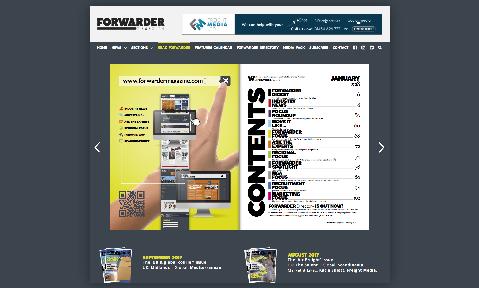

AIR FREIGHT
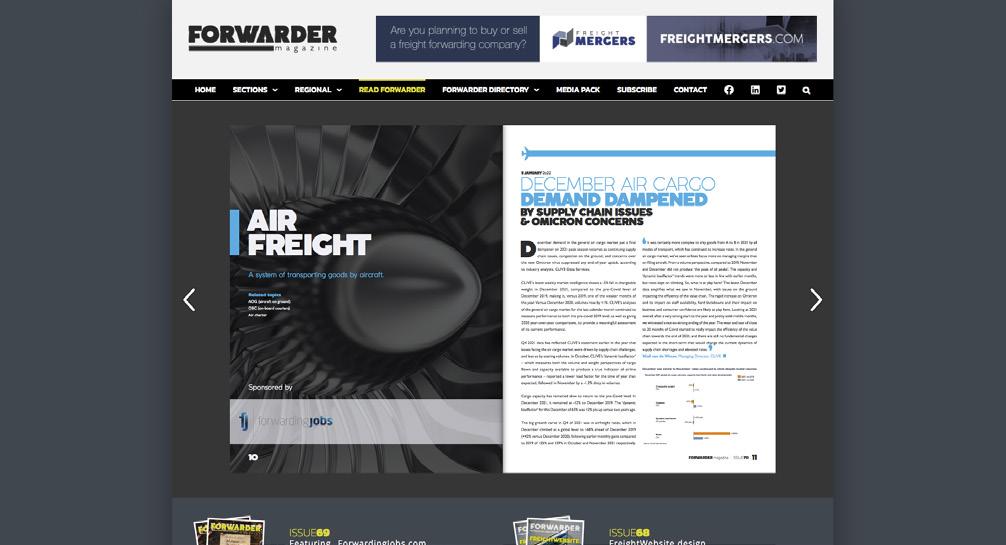
SEA FREIGHT
ROAD FREIGHT
RAIL FREIGHT
PROJECT CARGO
AIR & SEA PORTS
TECH & DIGITALISATION
CUSTOMS CLEARANCE

INDUSTRY SERVICES

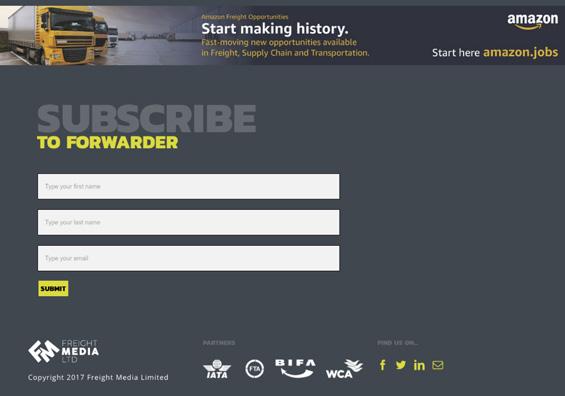
EVENTS & EXHIBITIONS


RECRUITMENT & TRAINING


MERGERS & ACQUISITIONS
GIVING BACK
